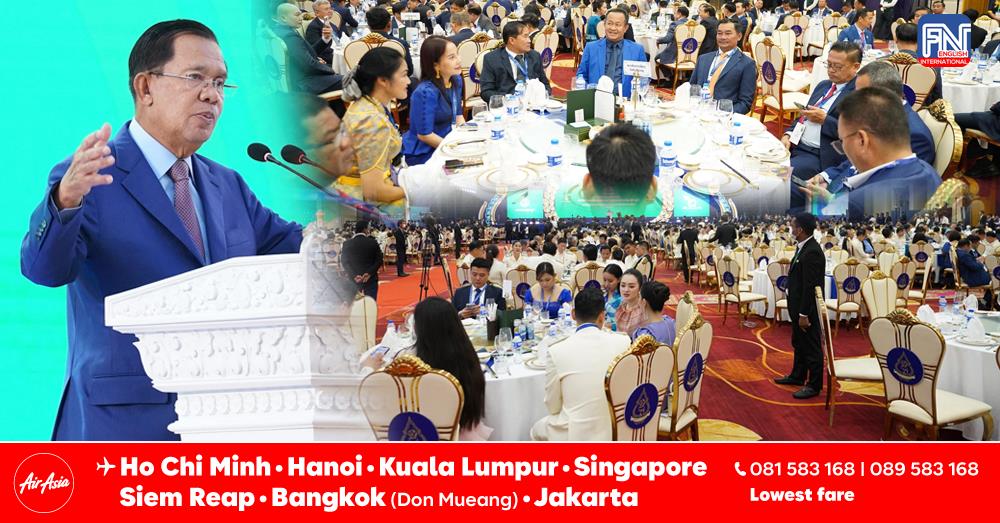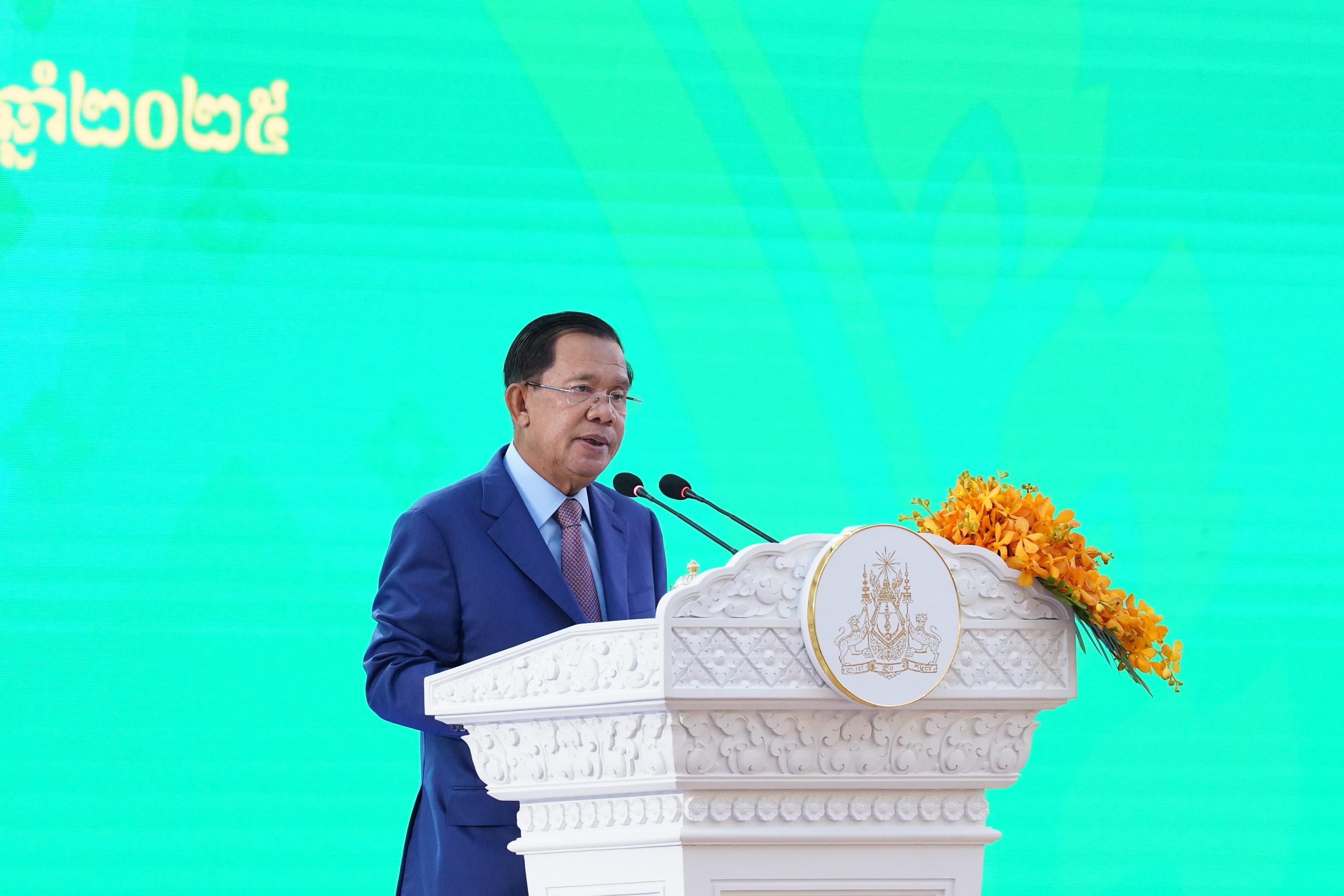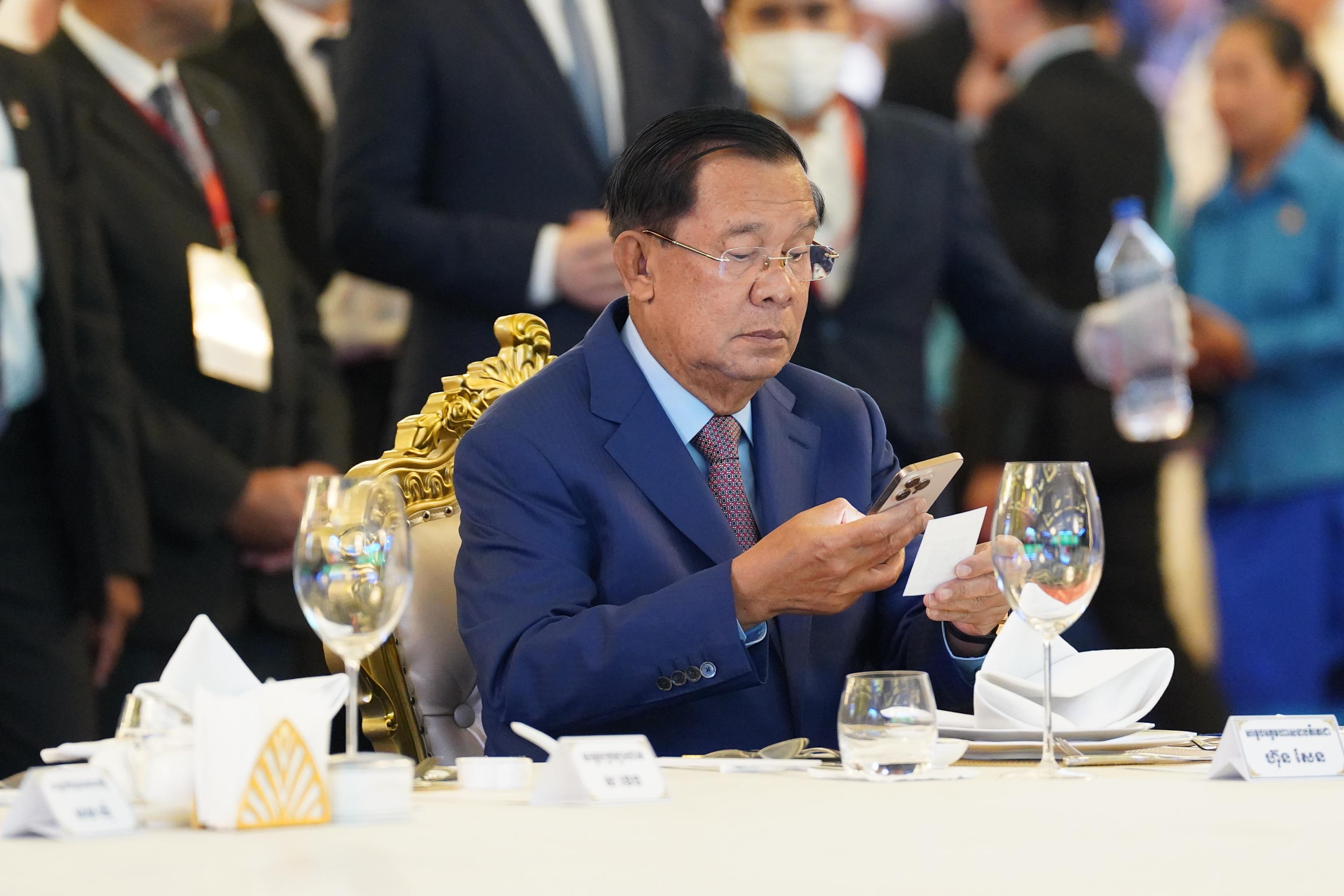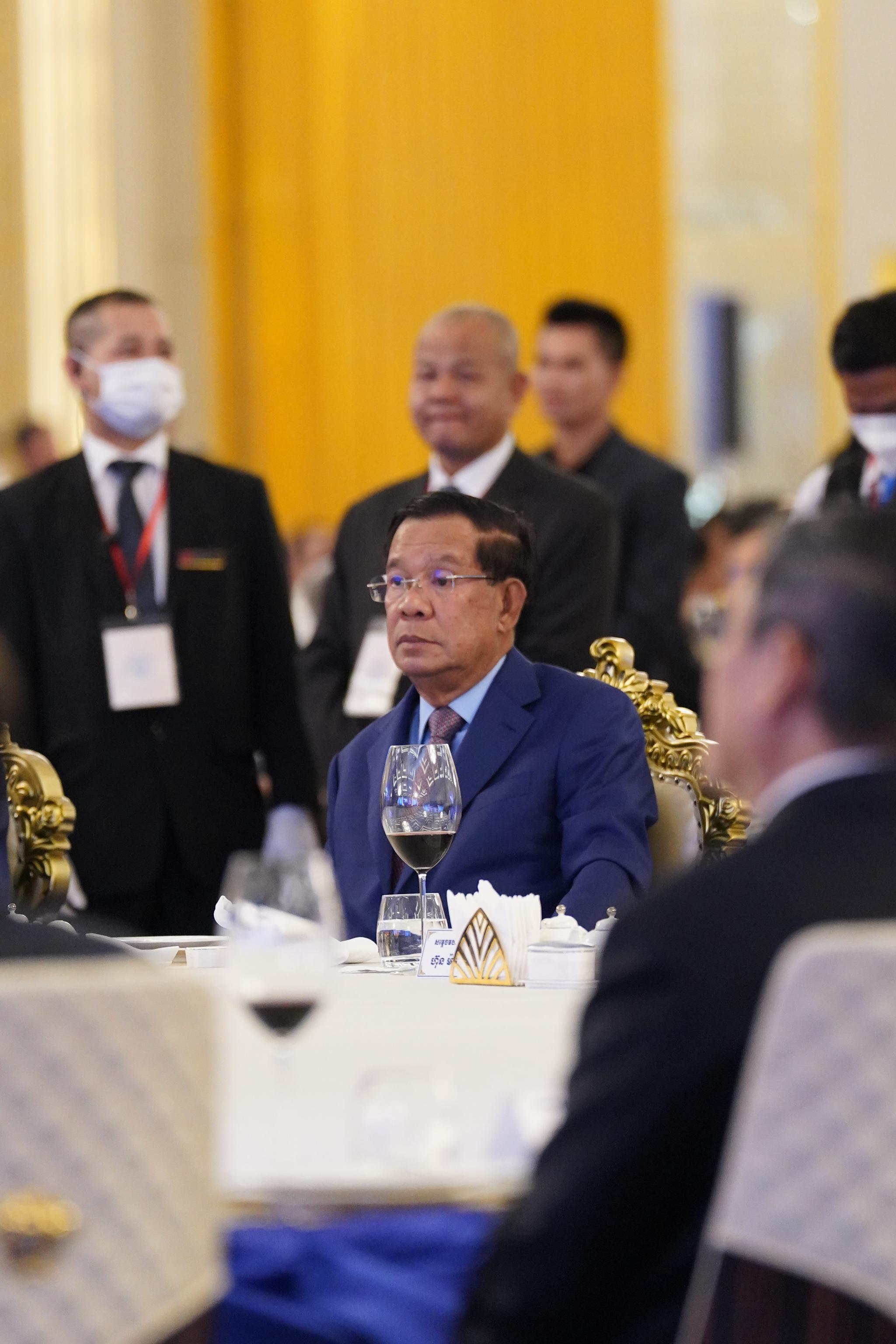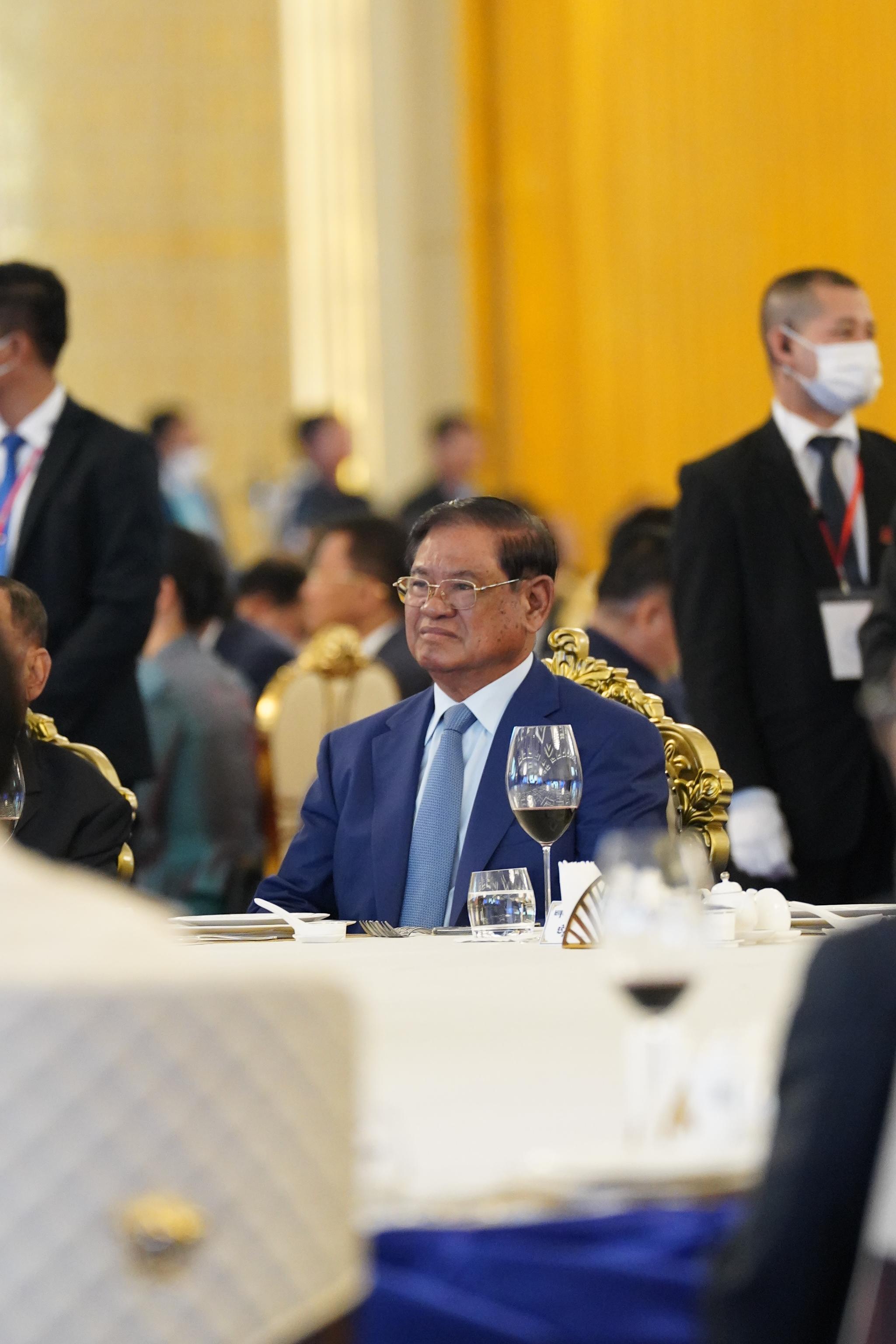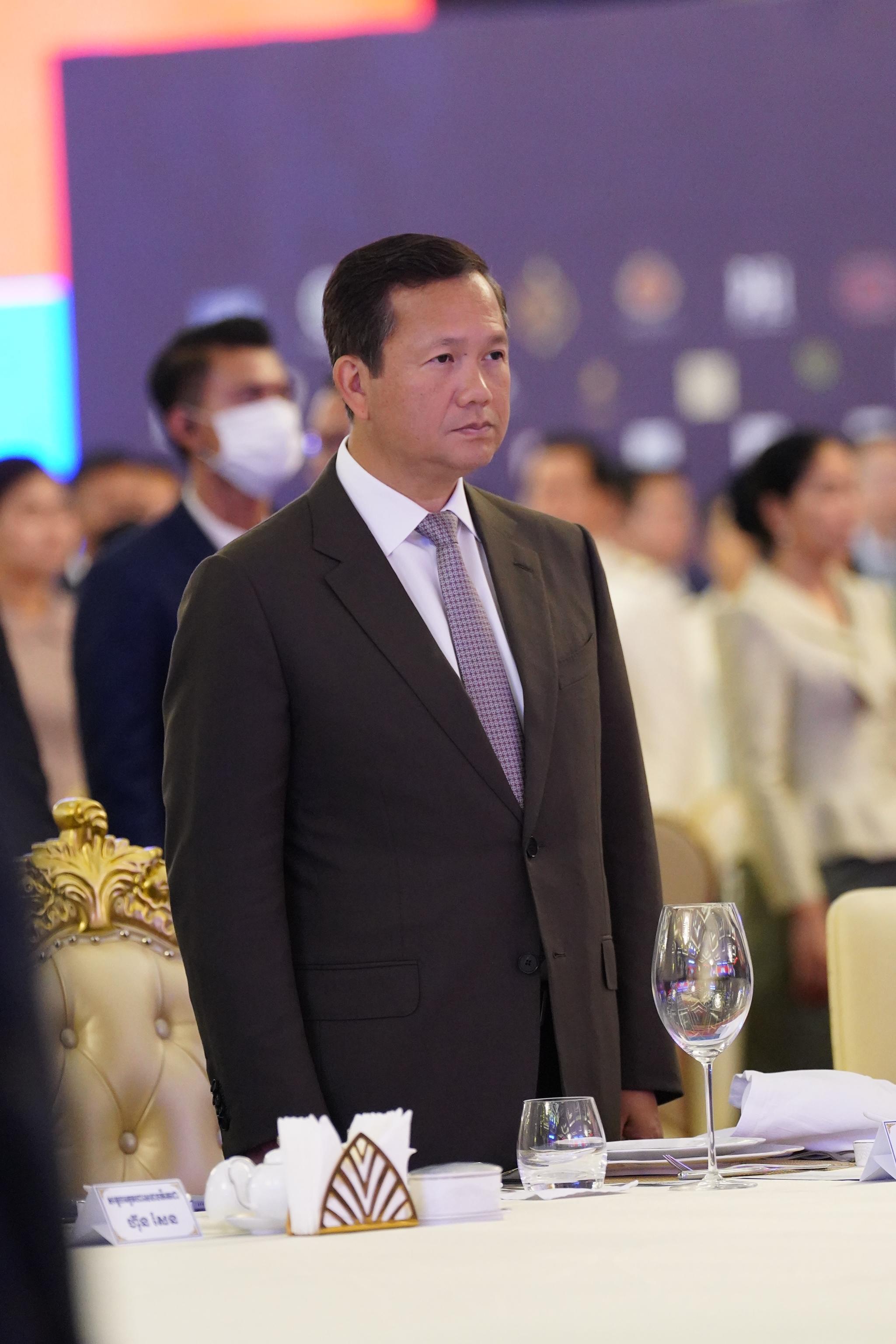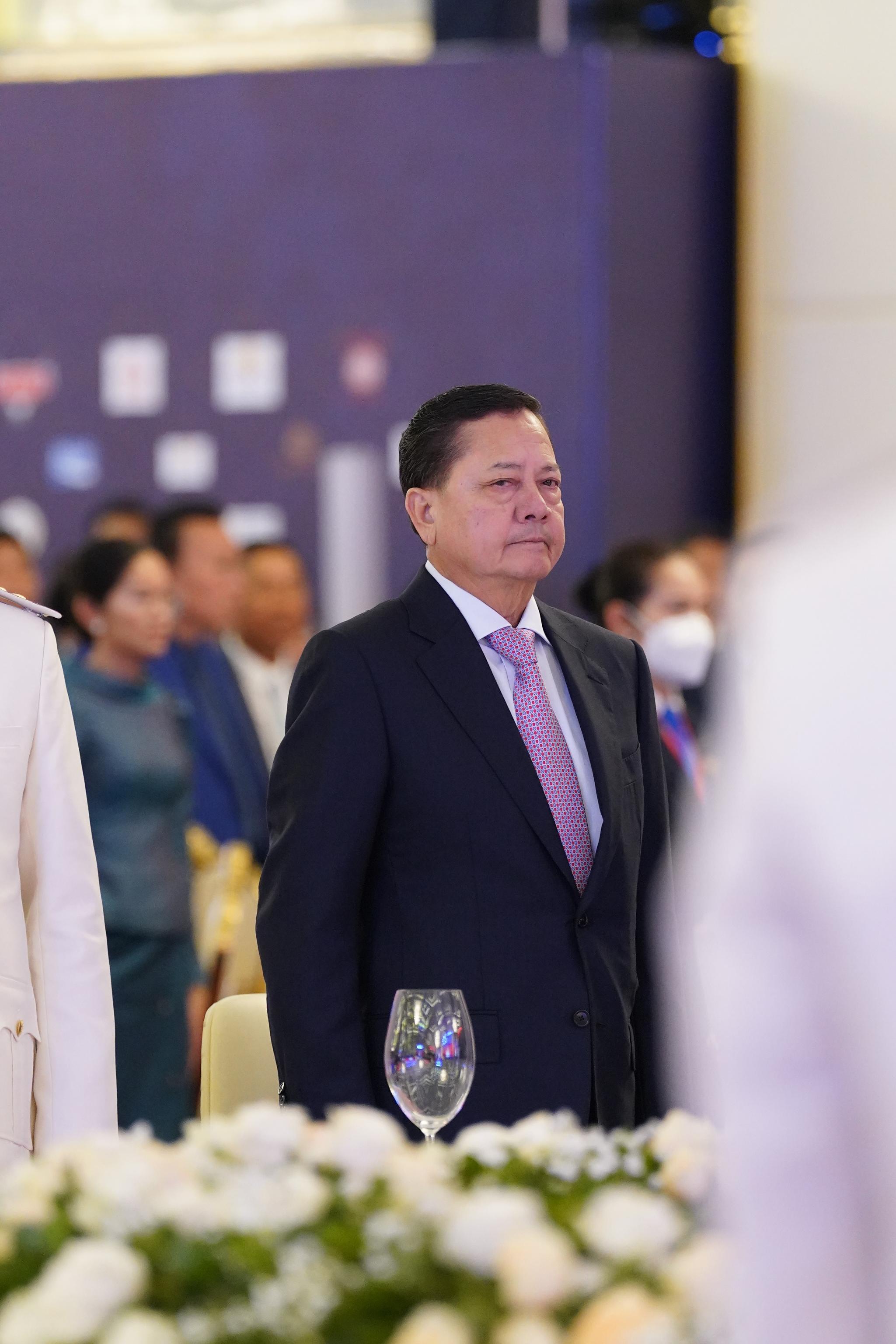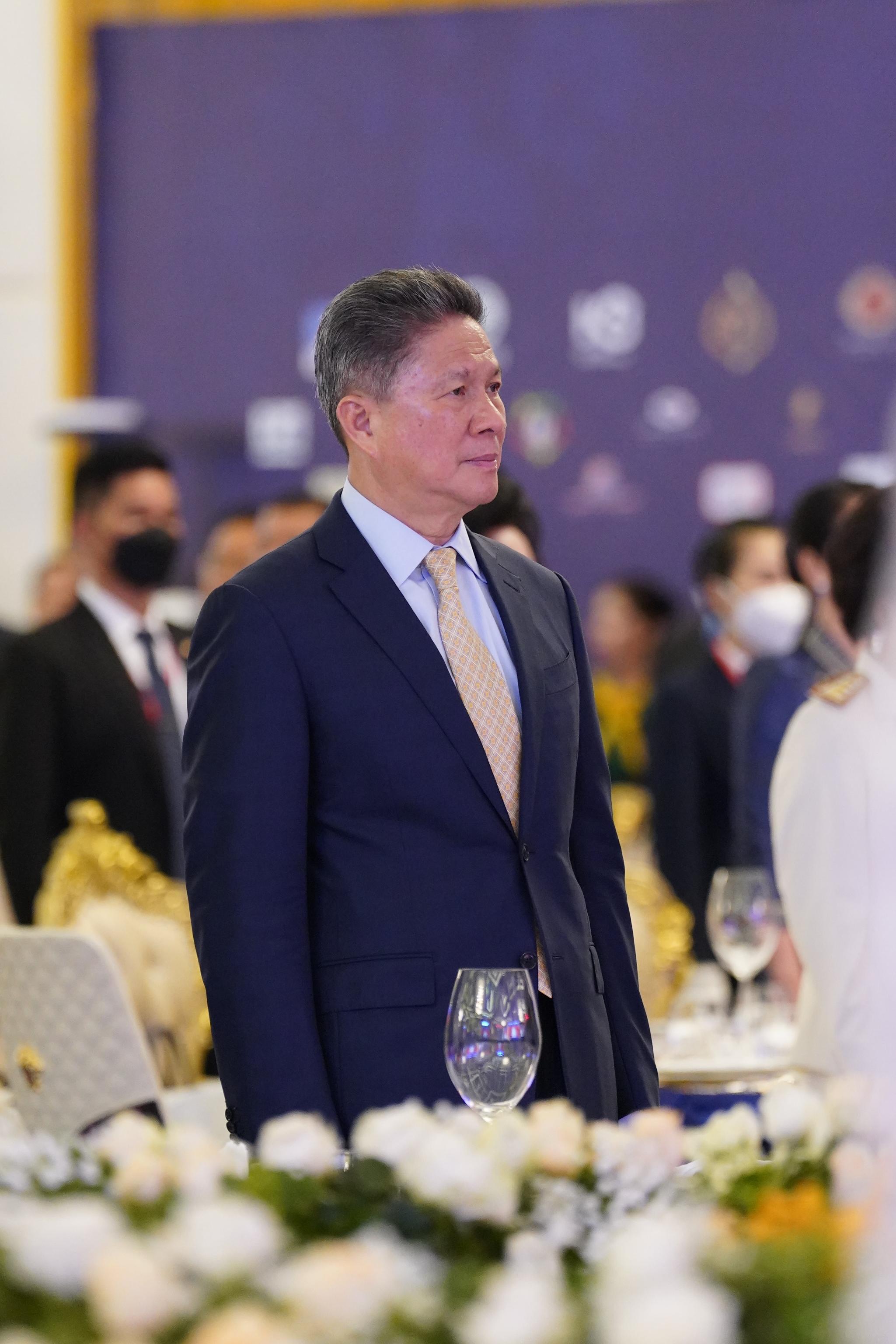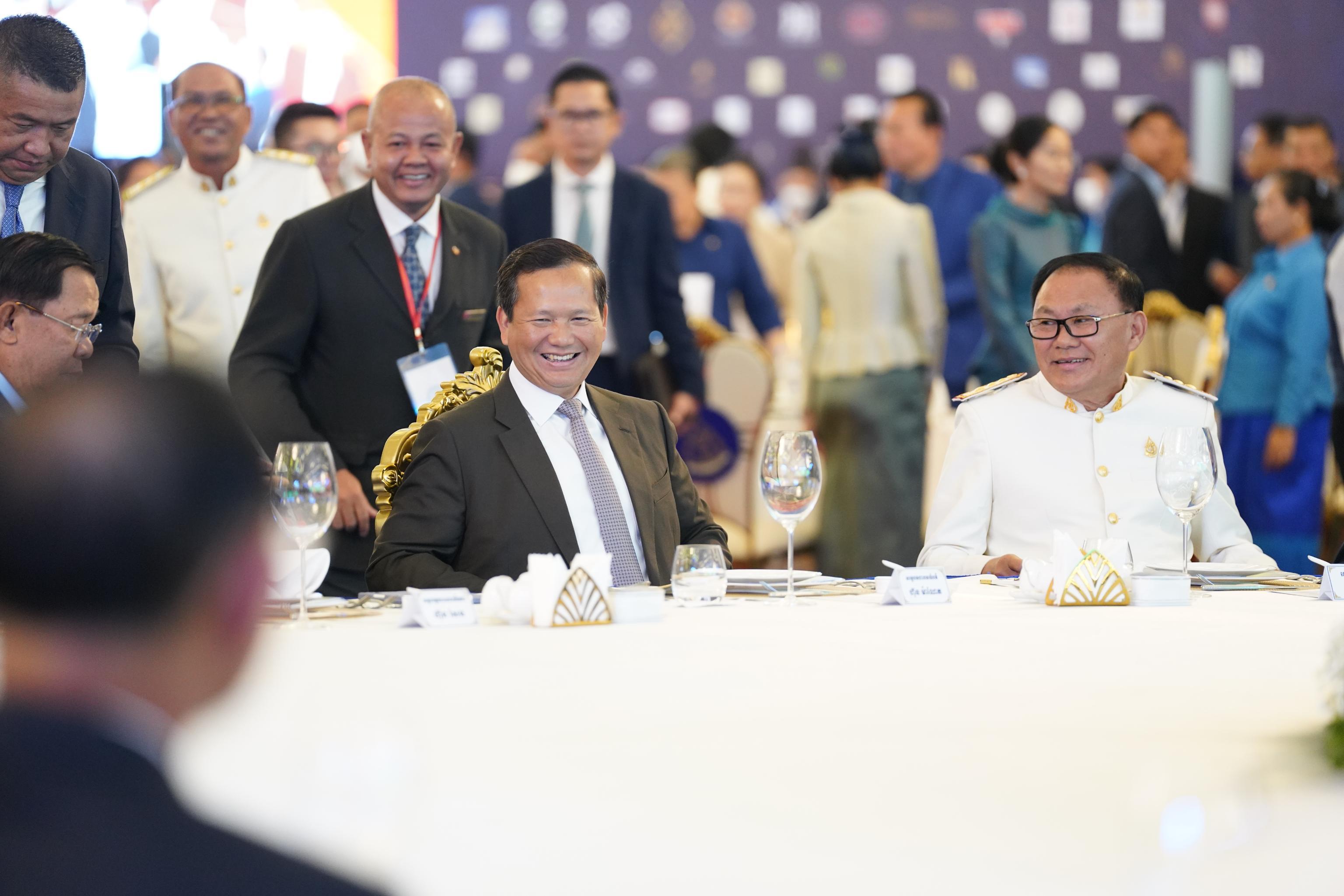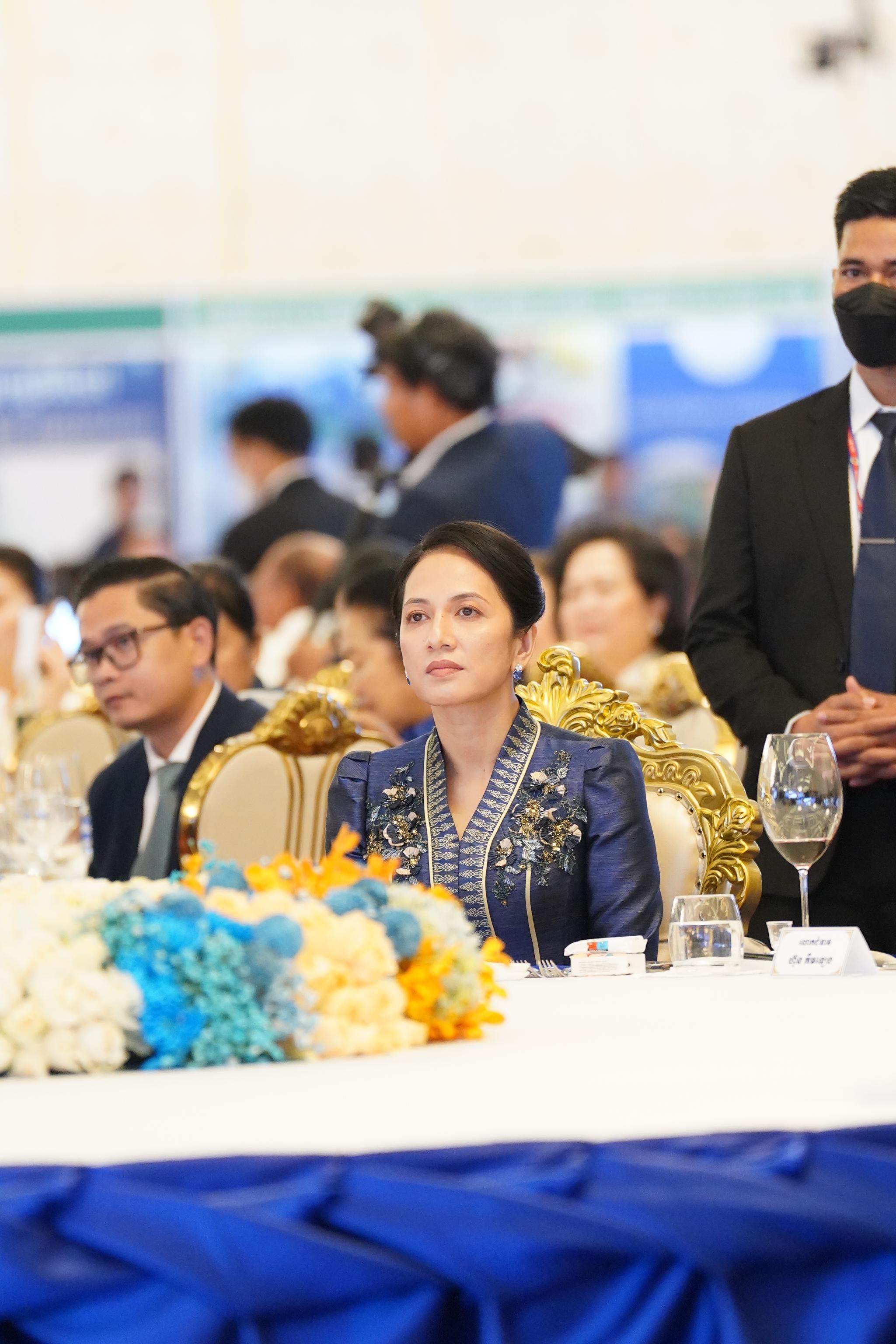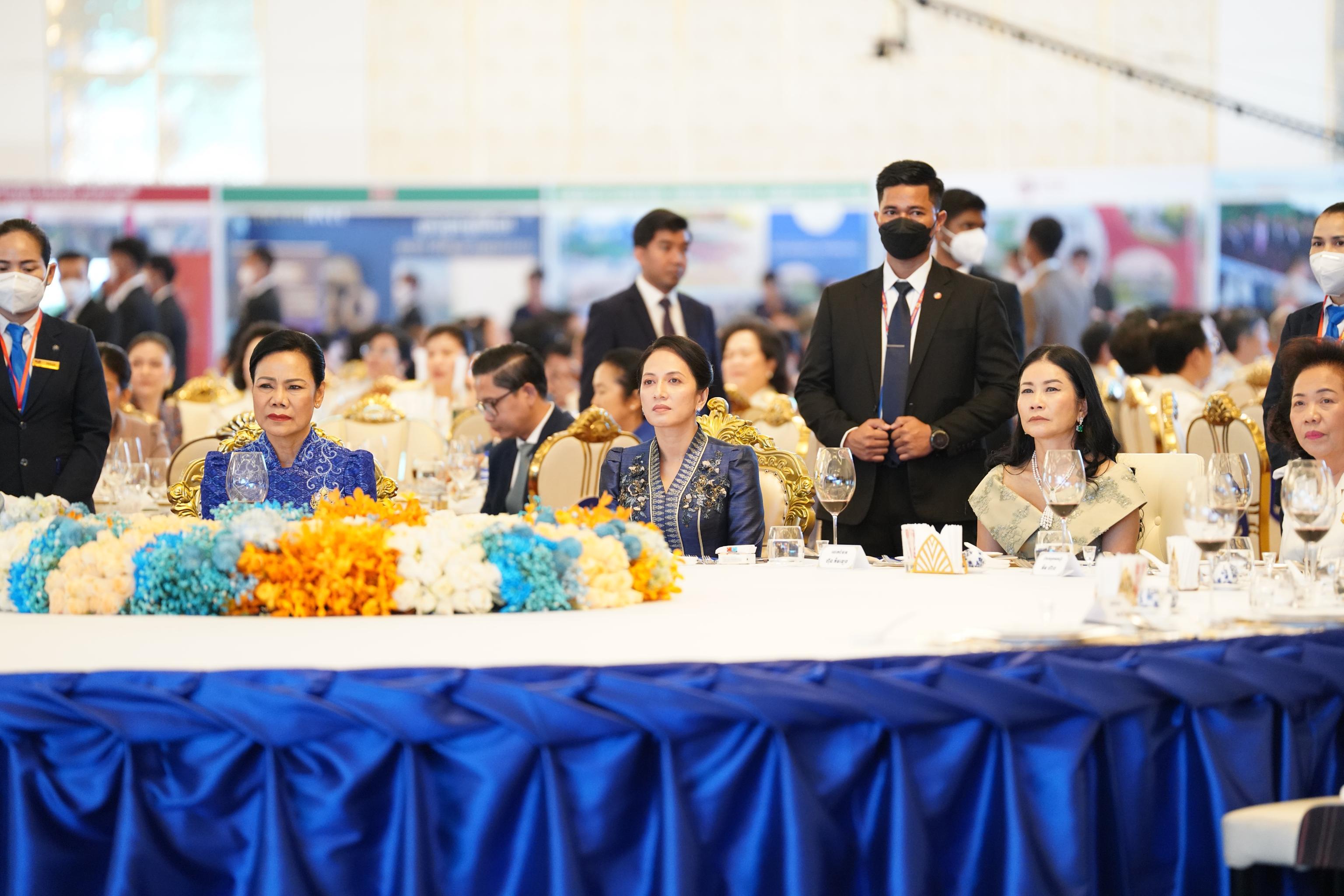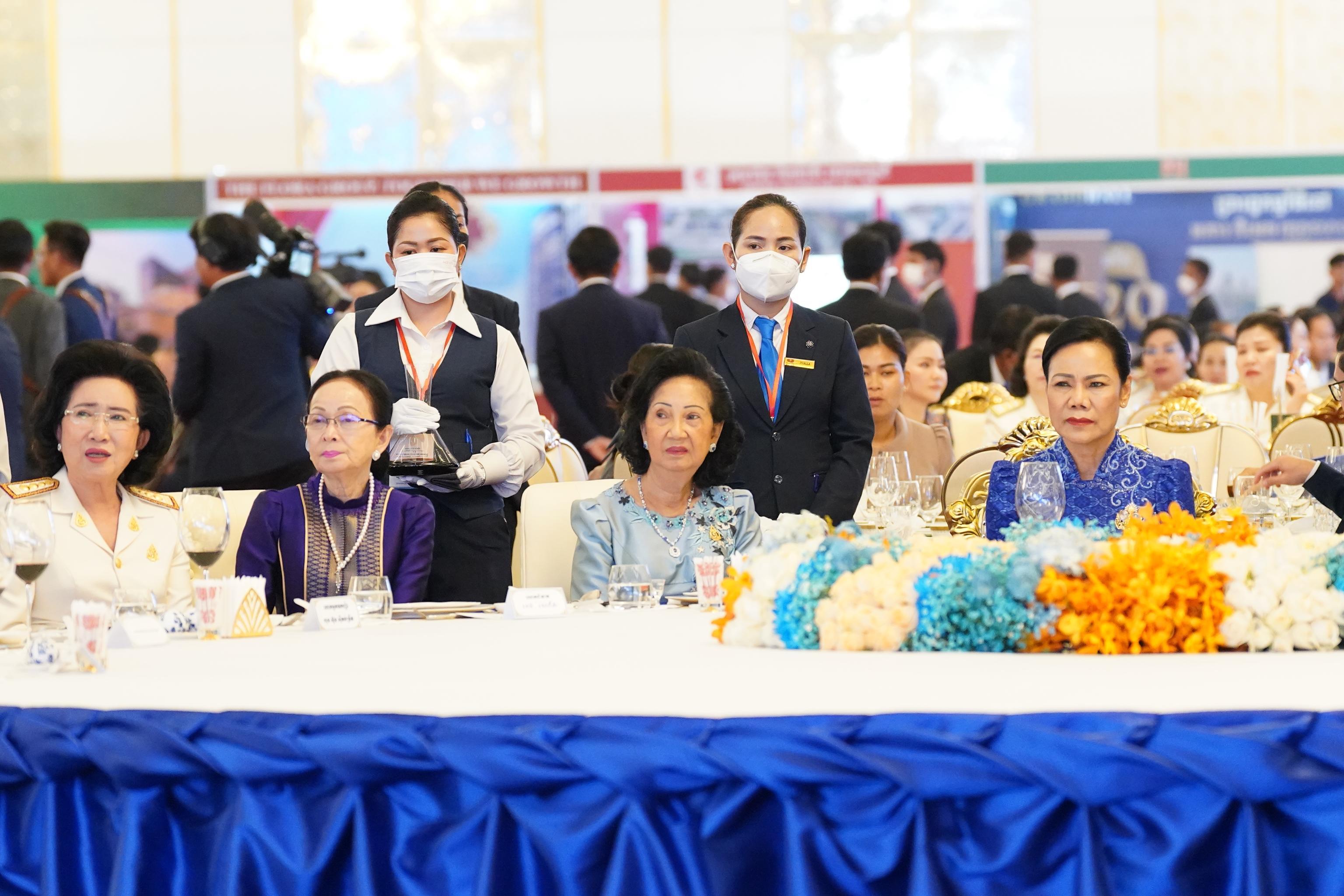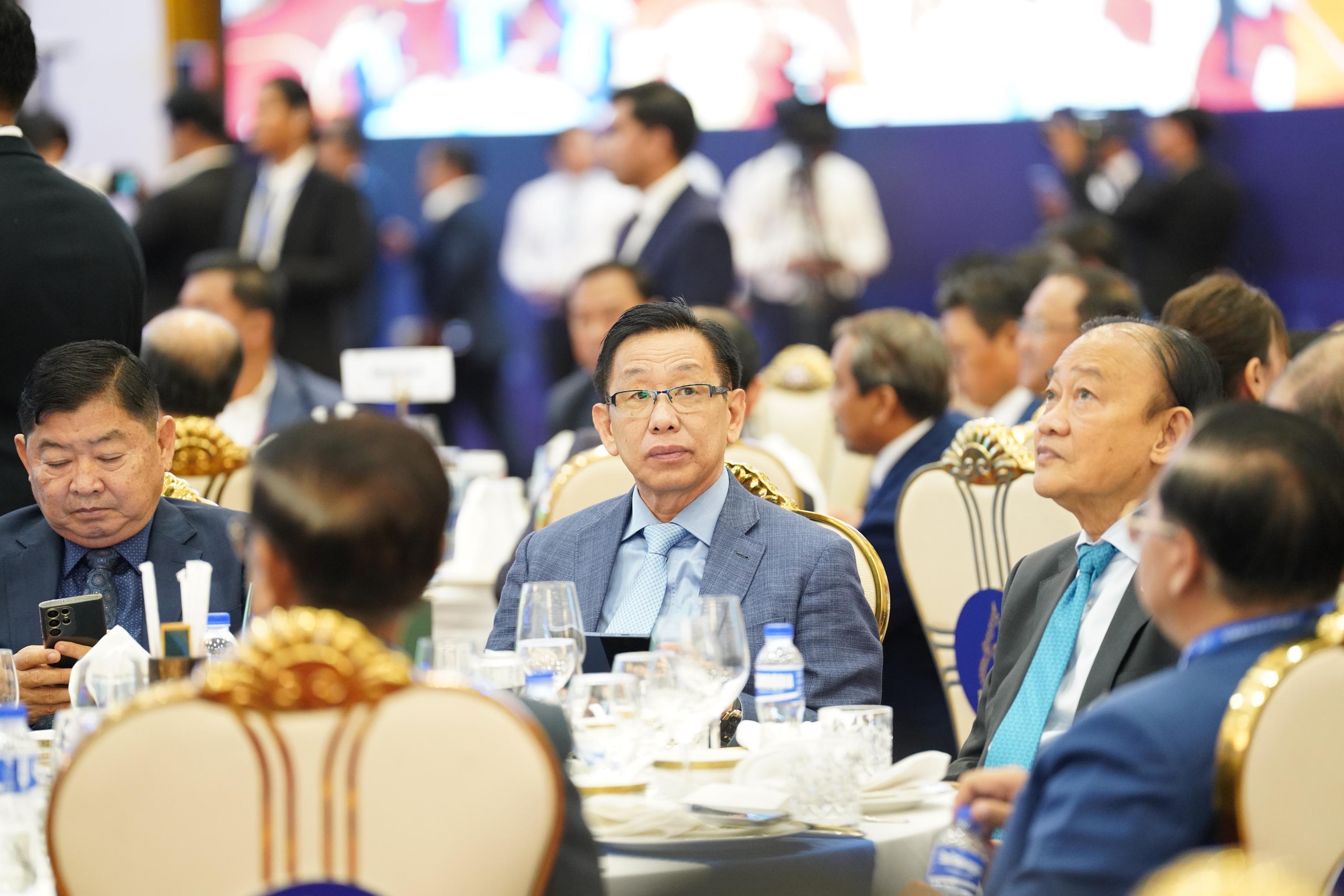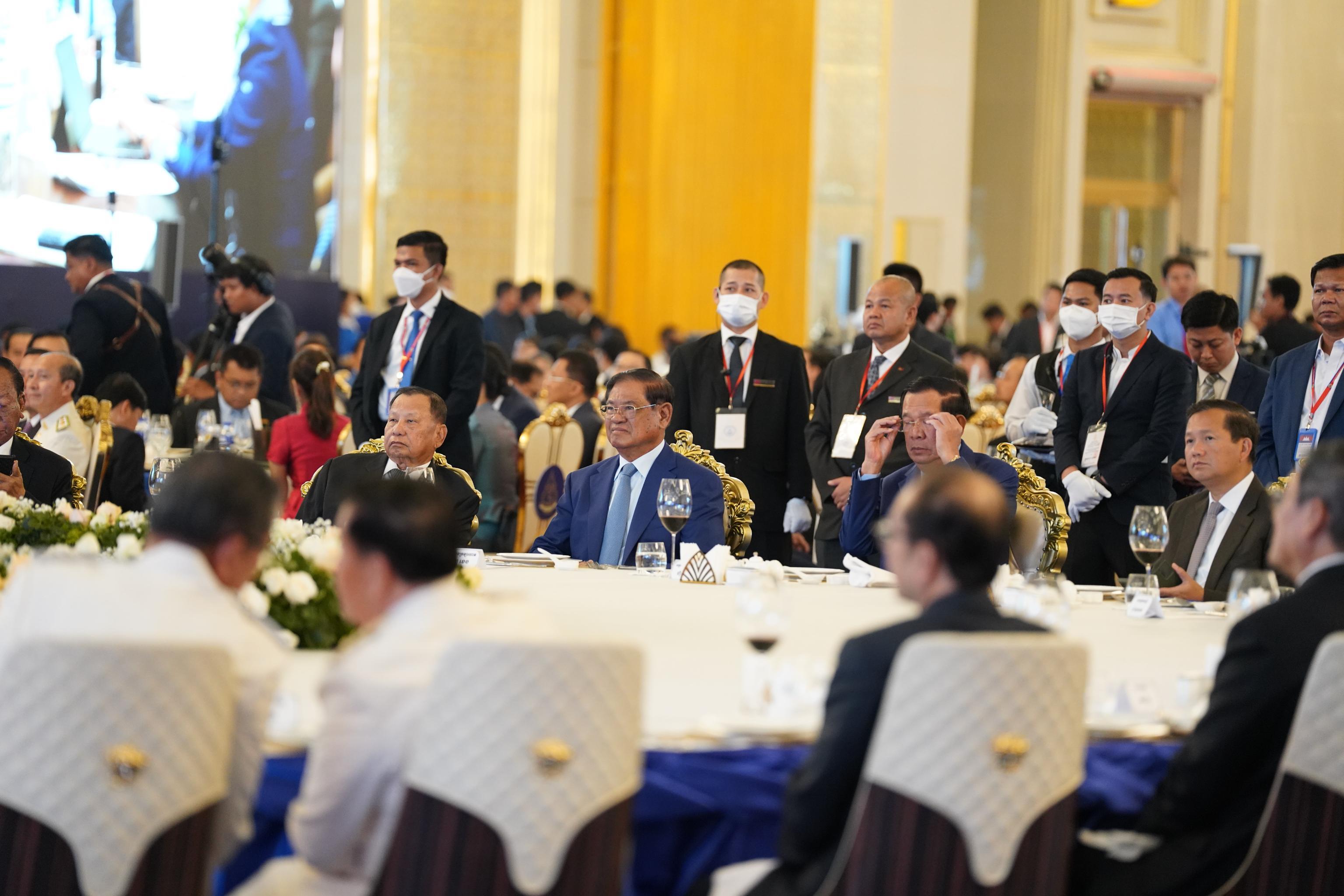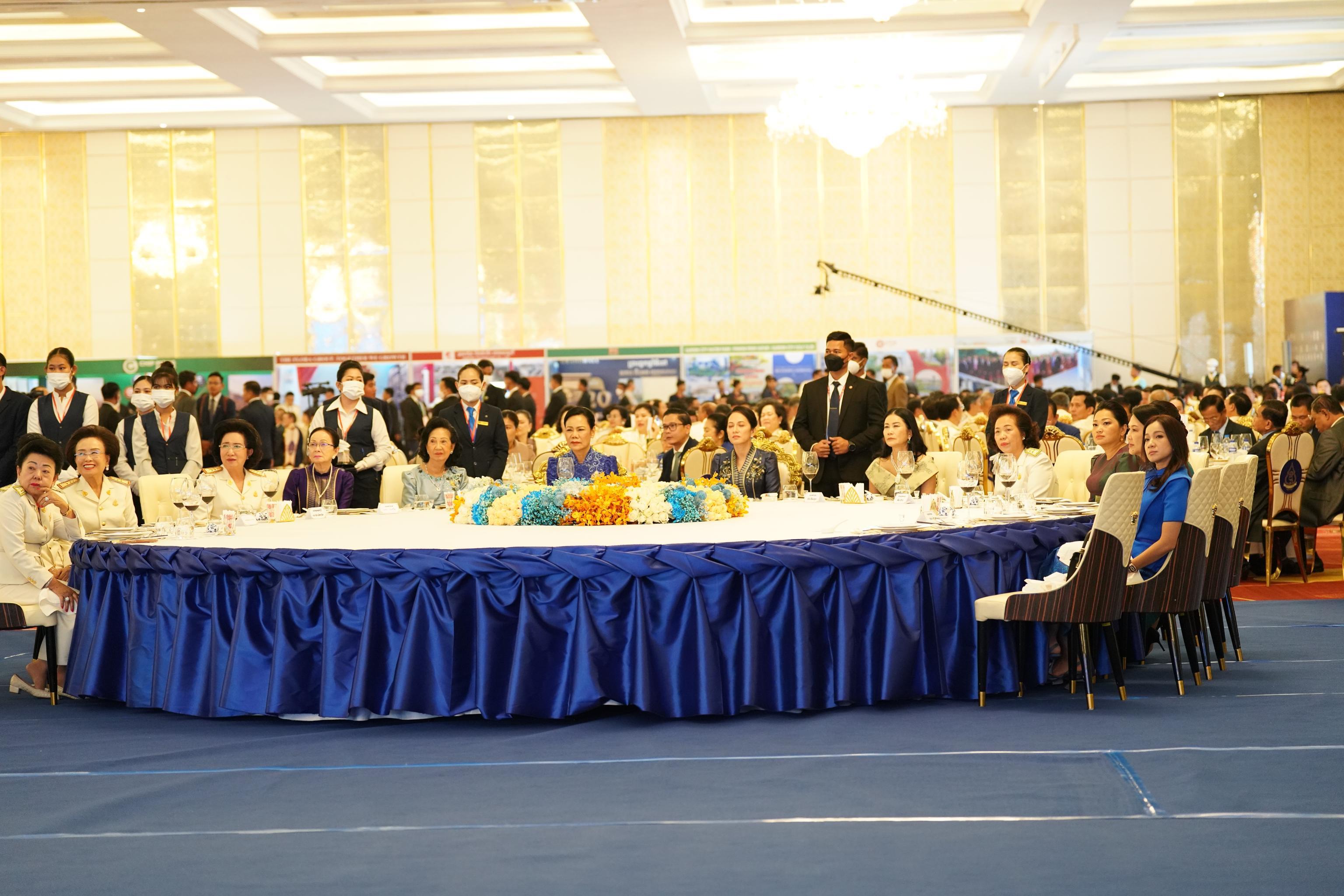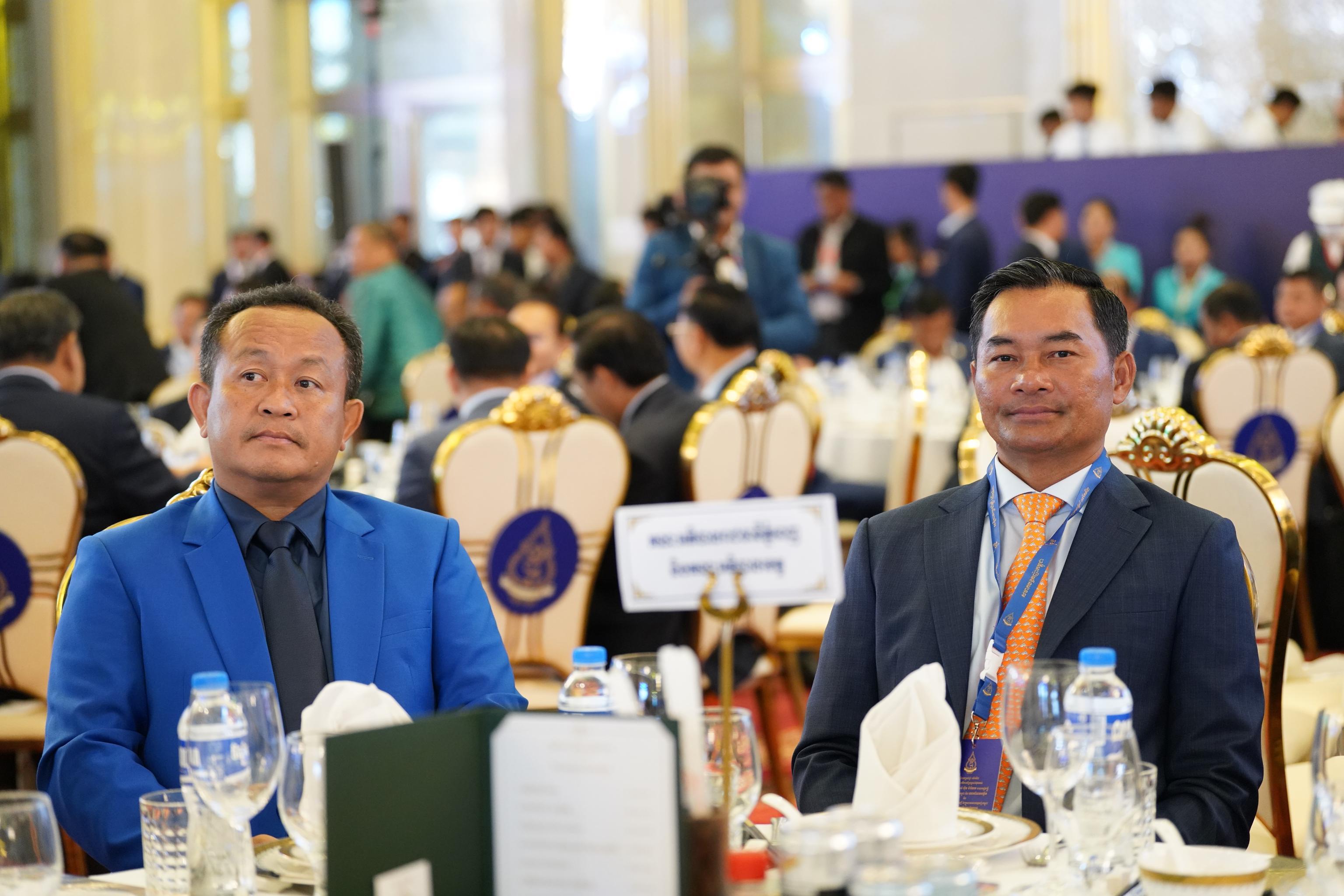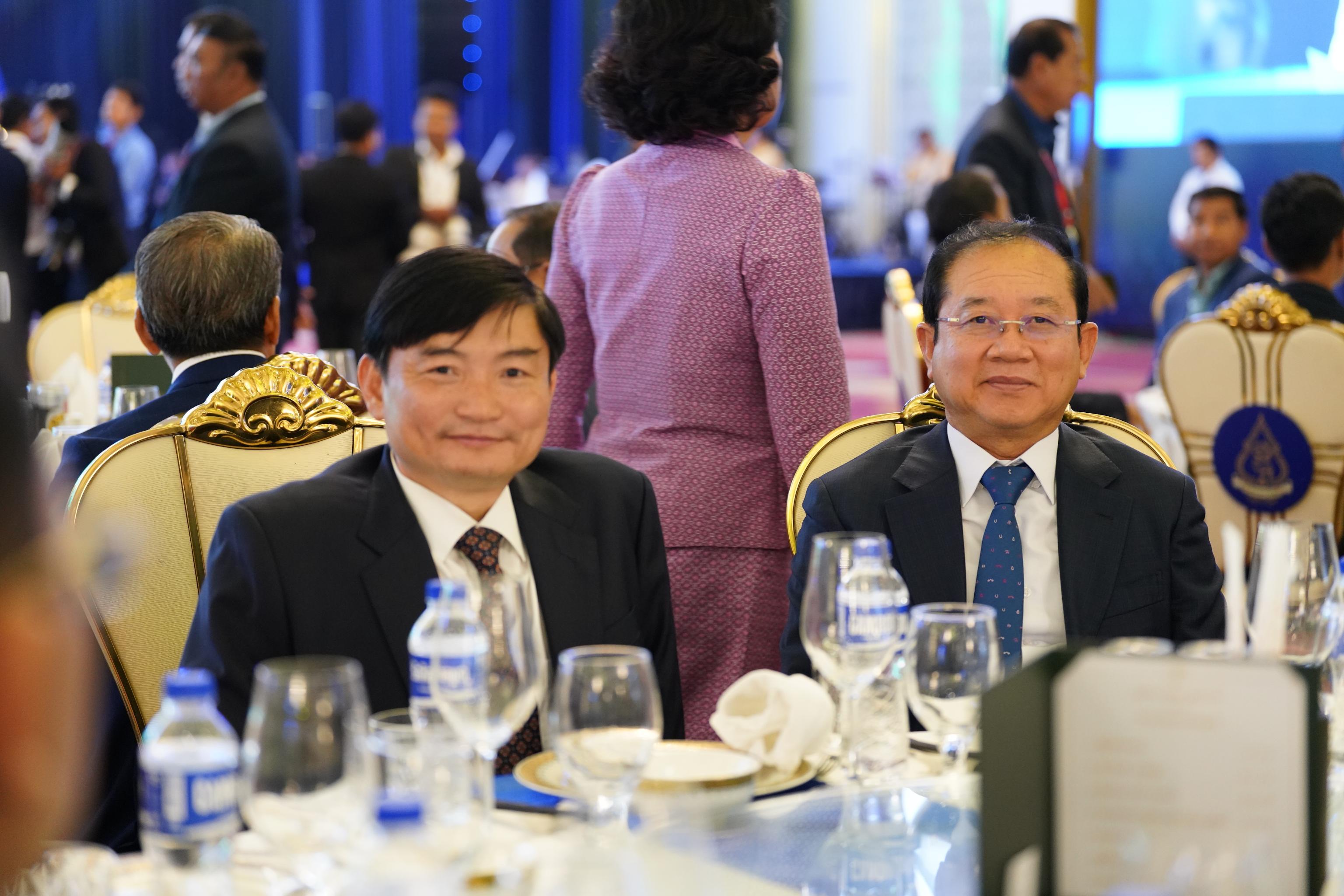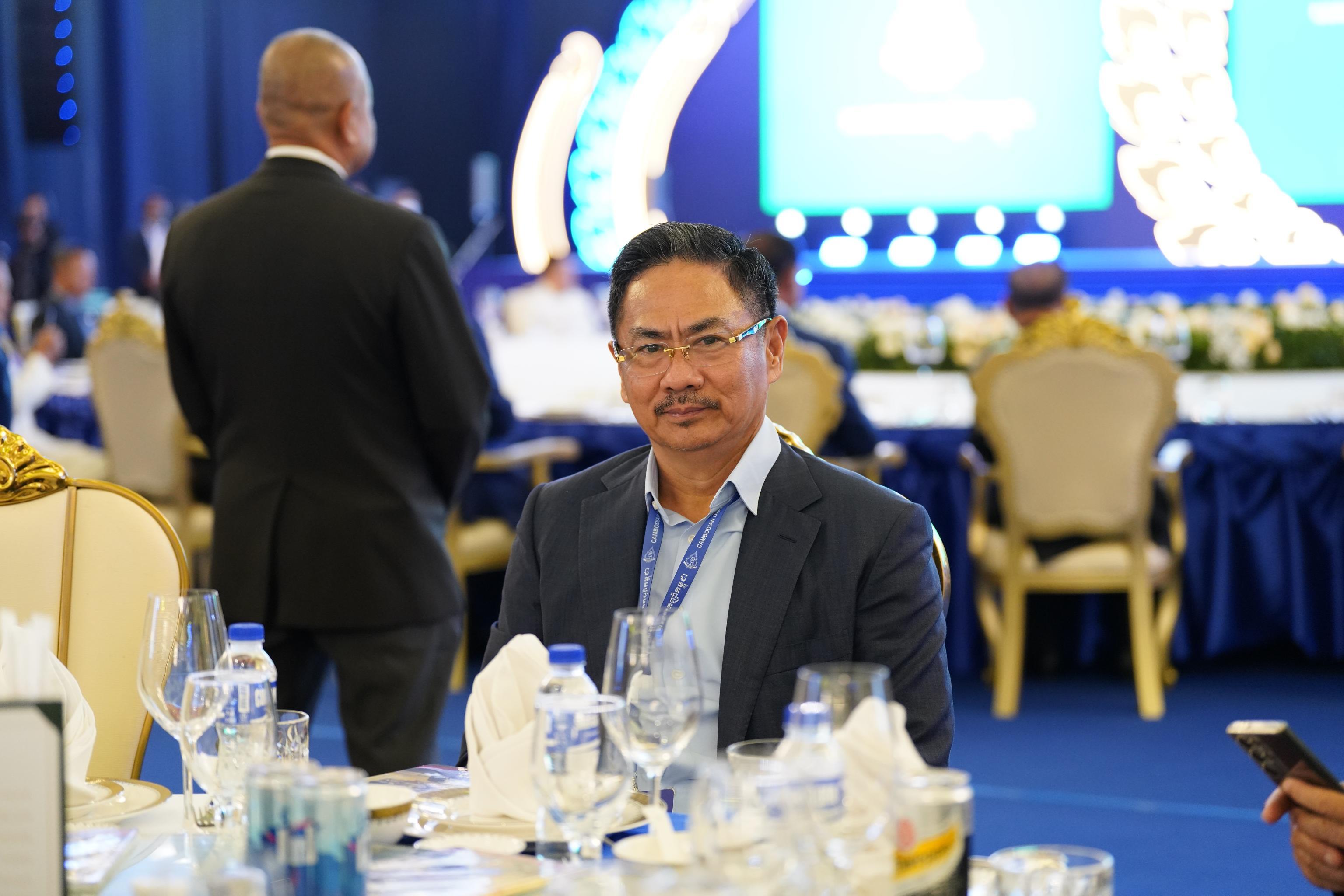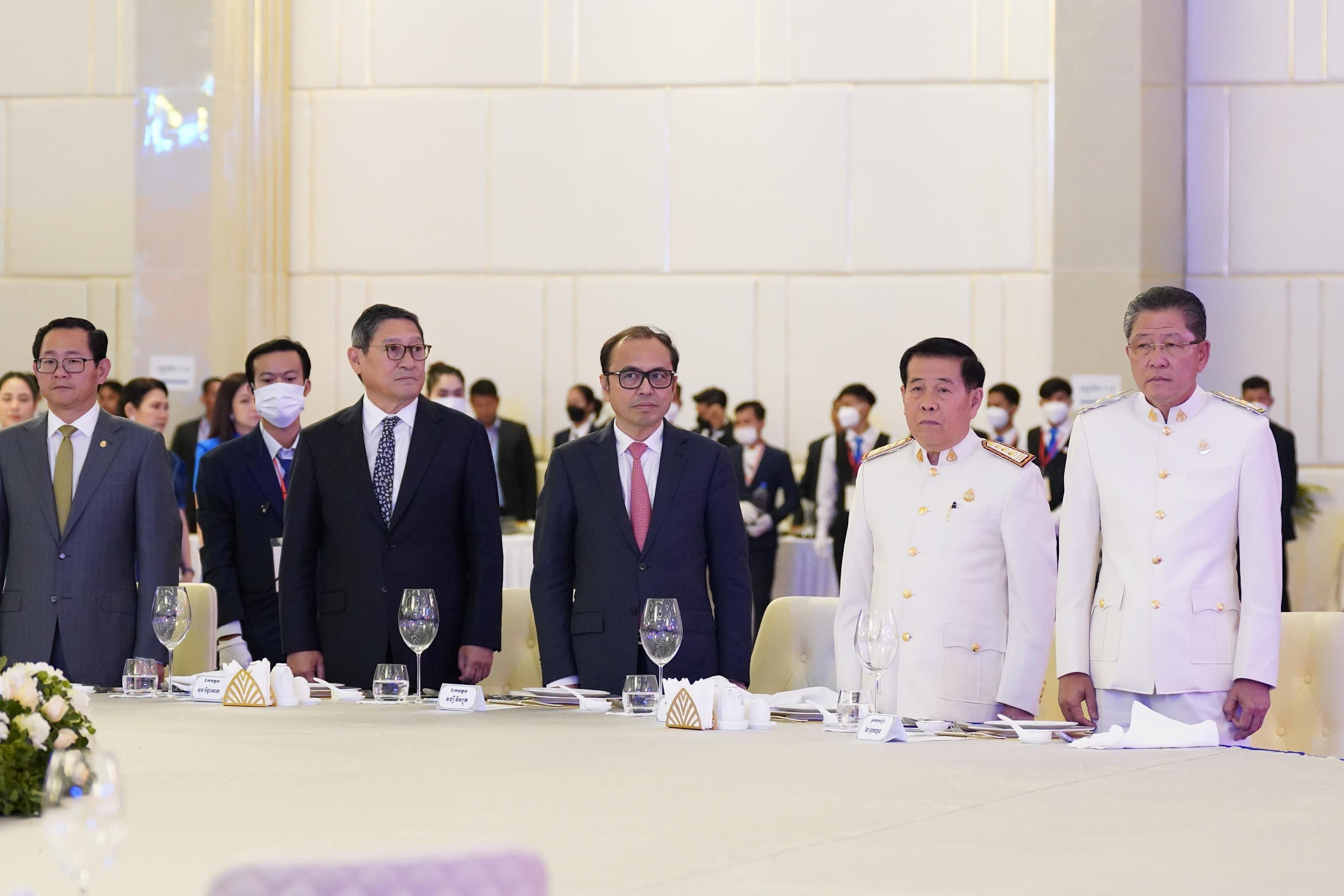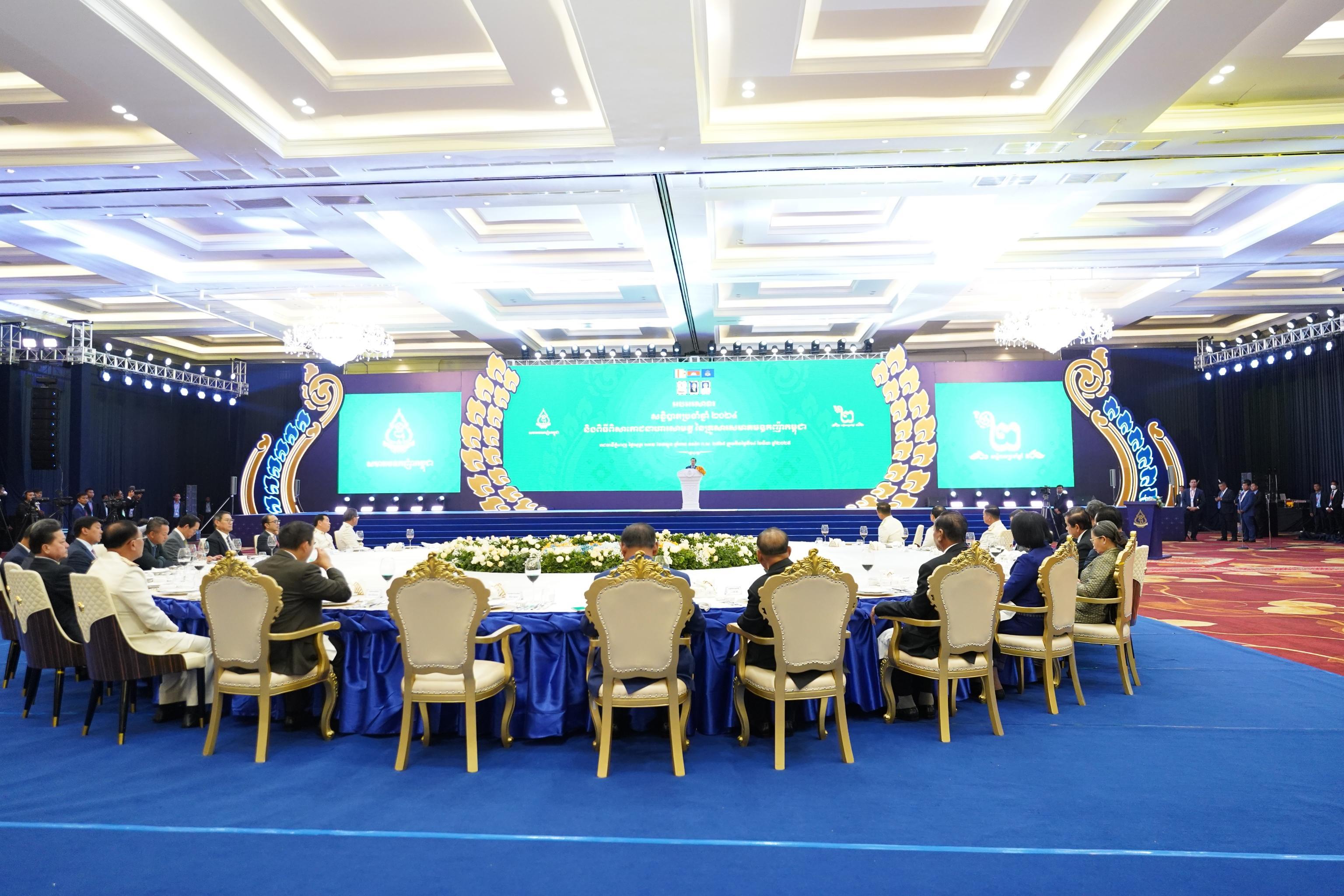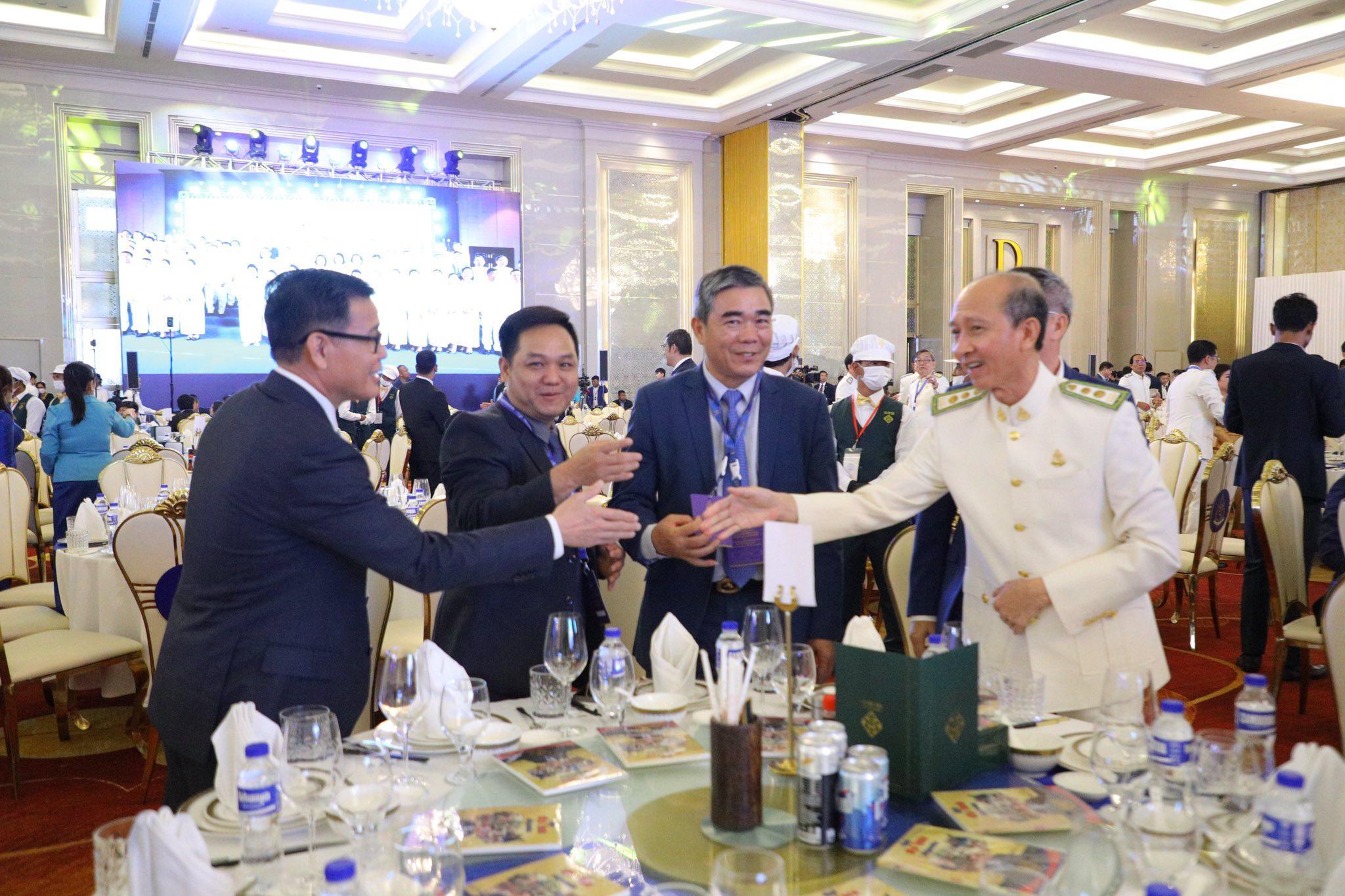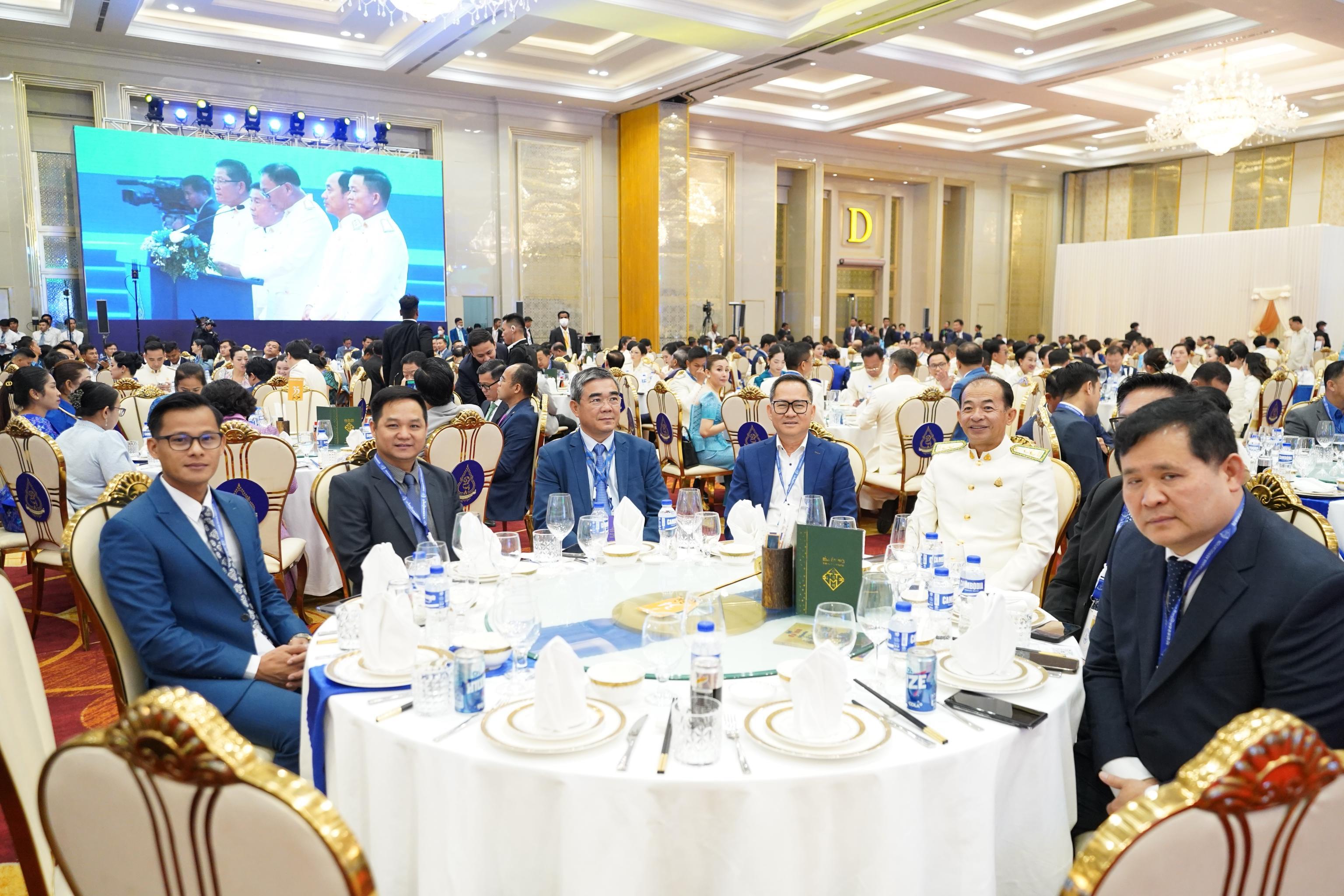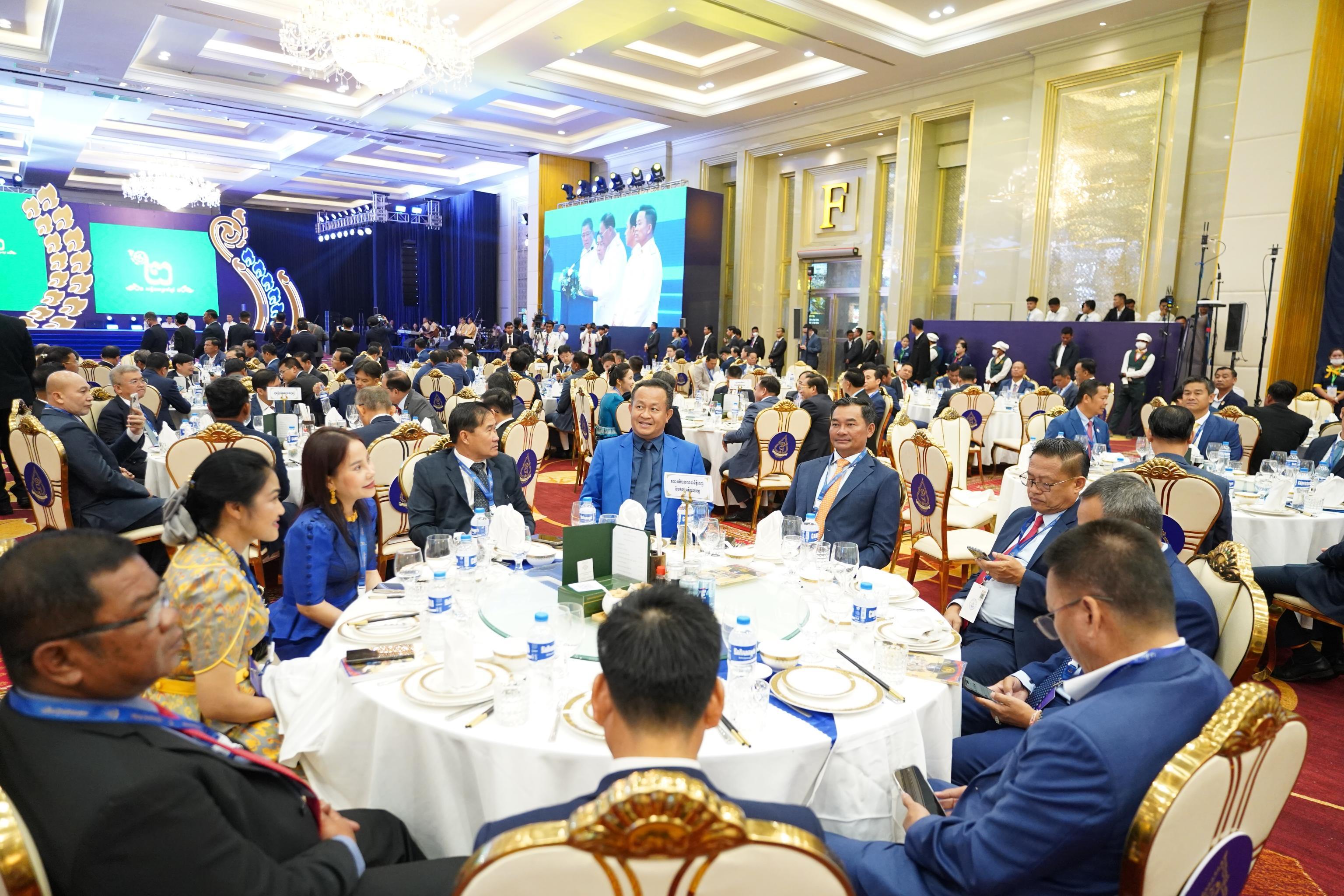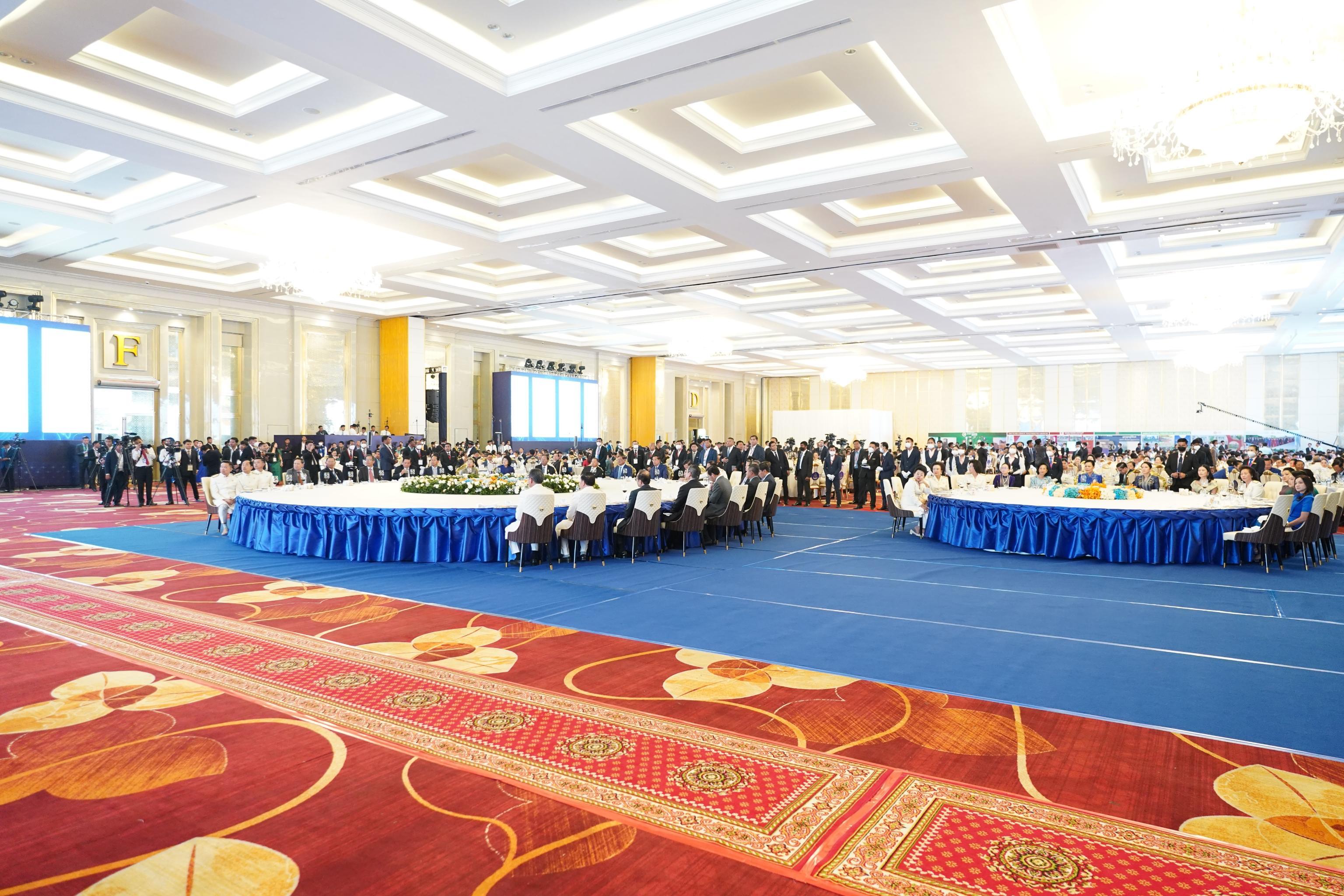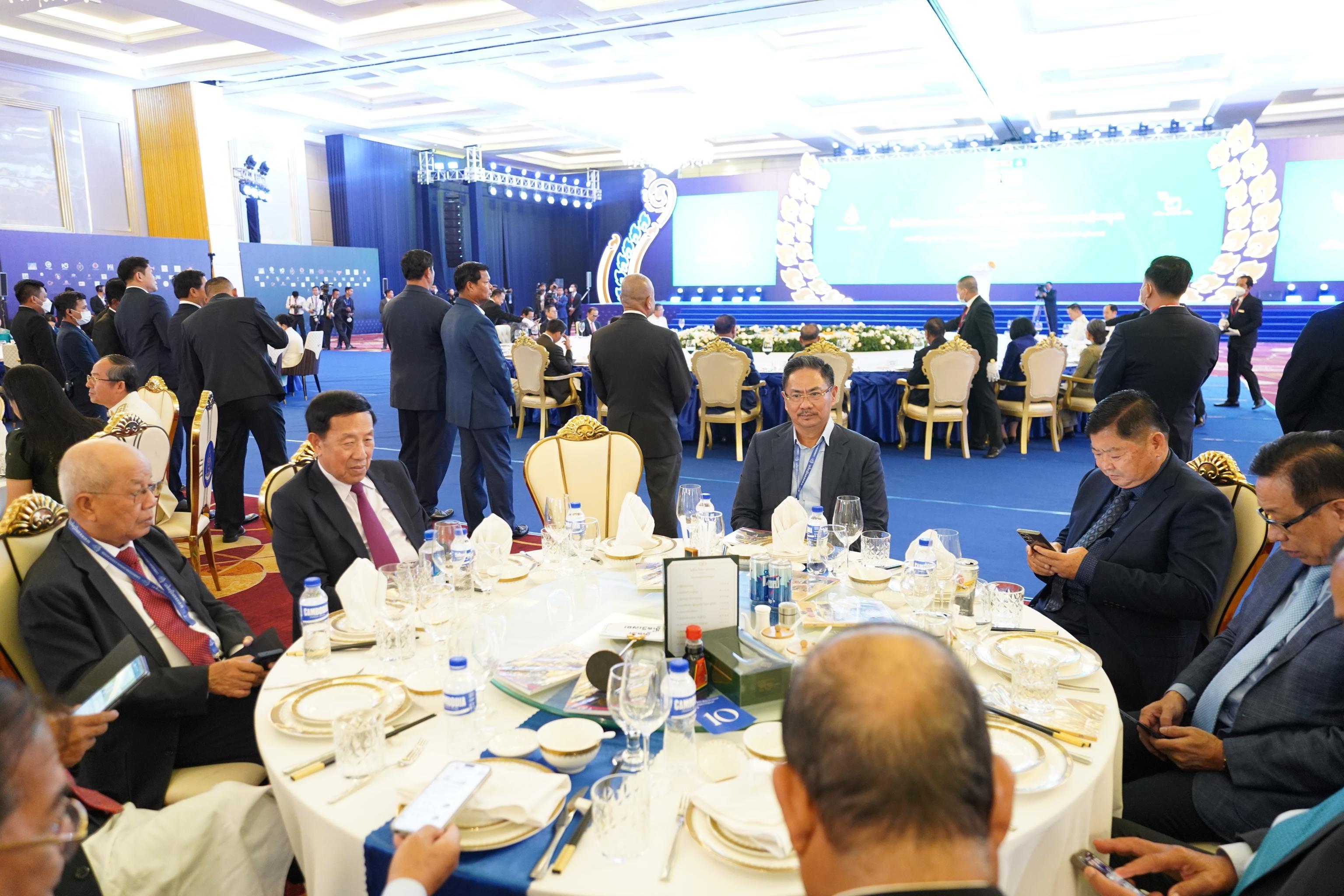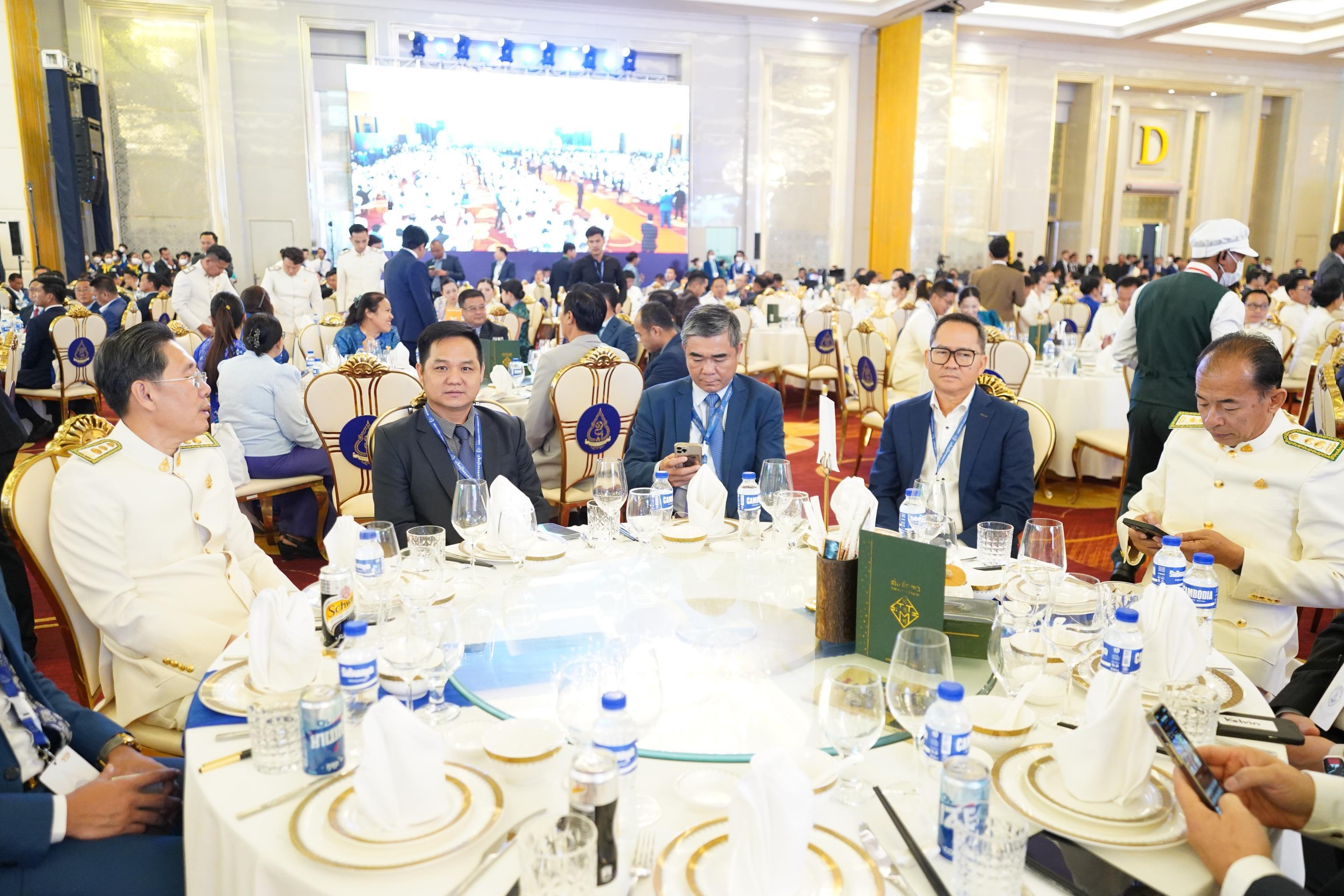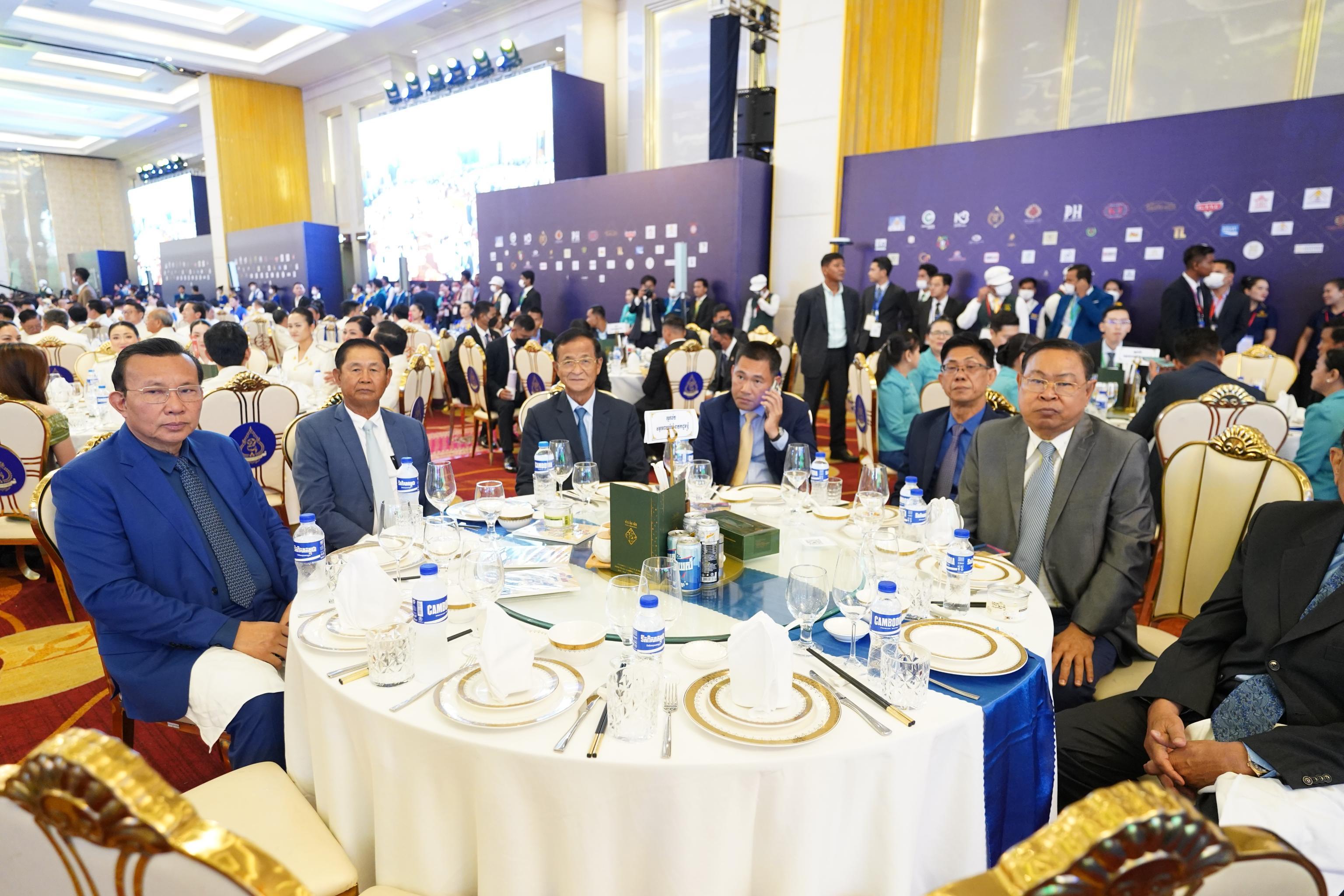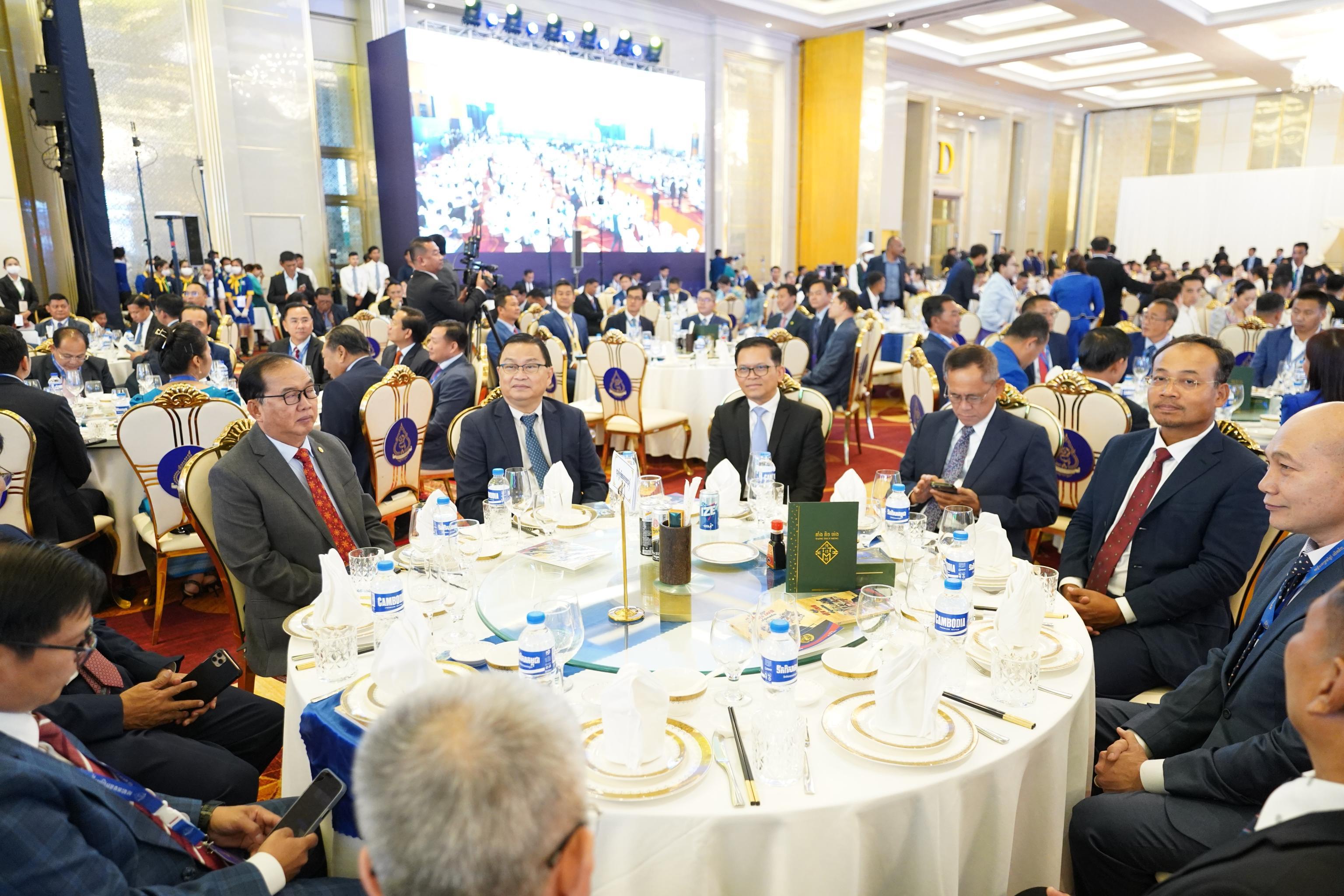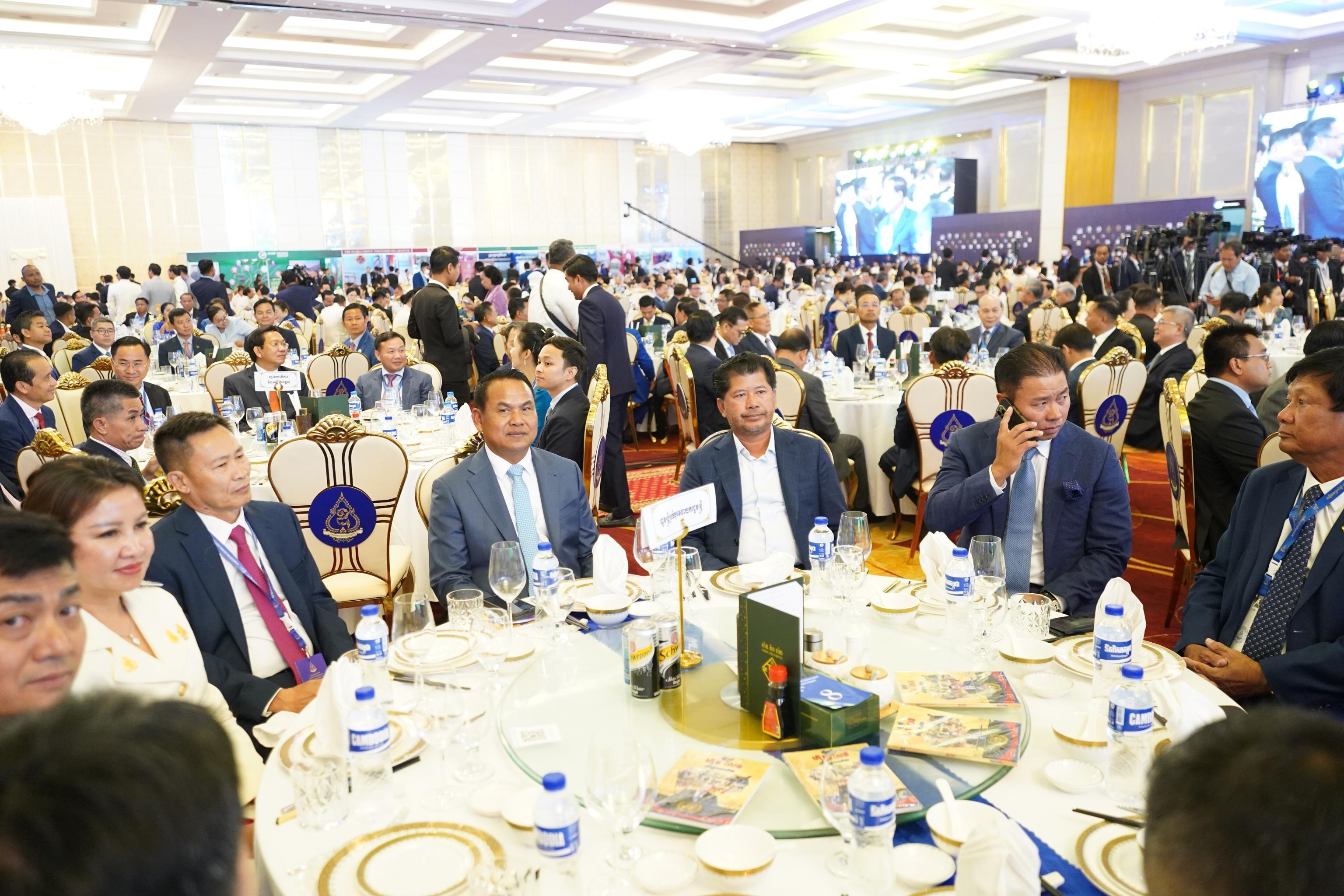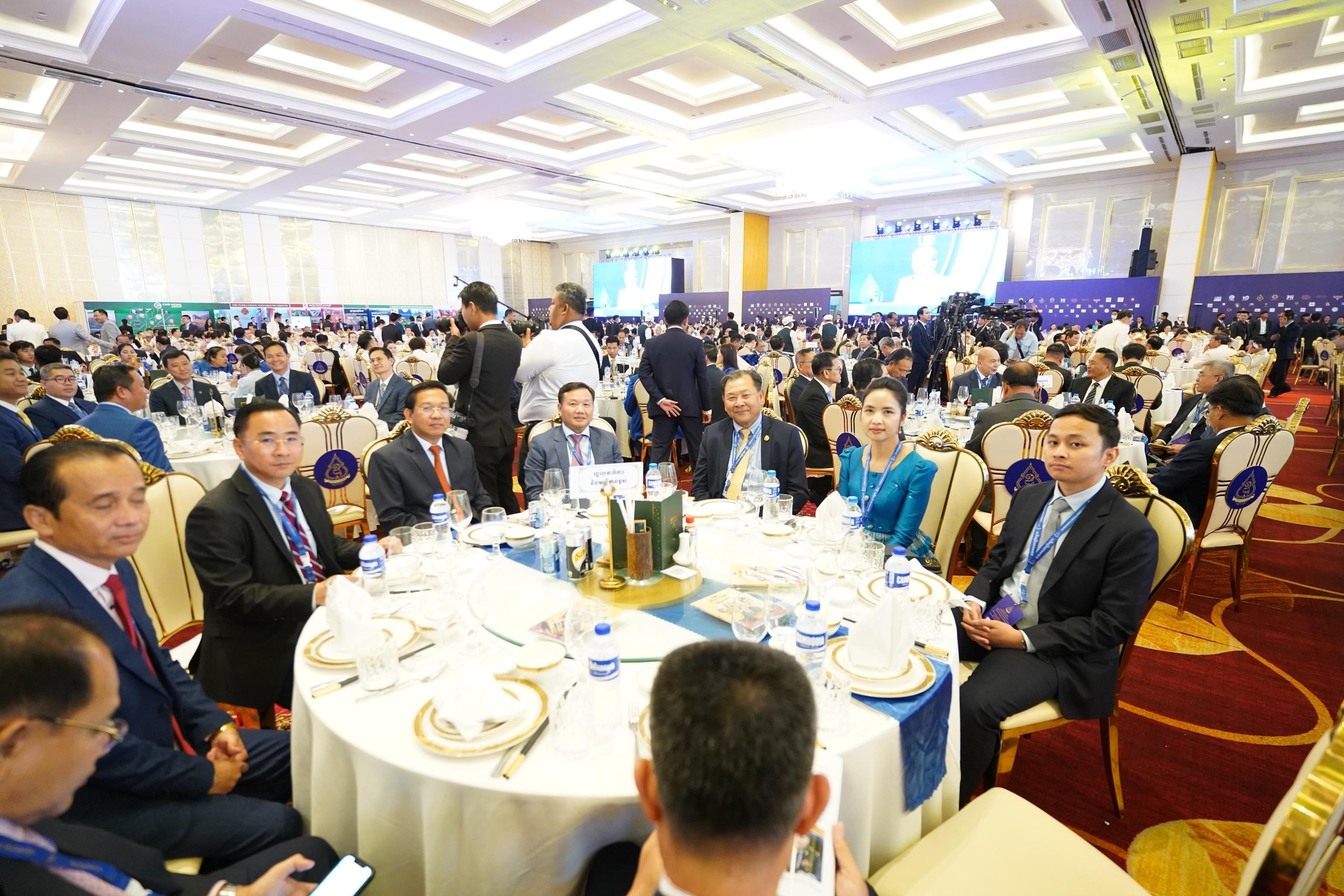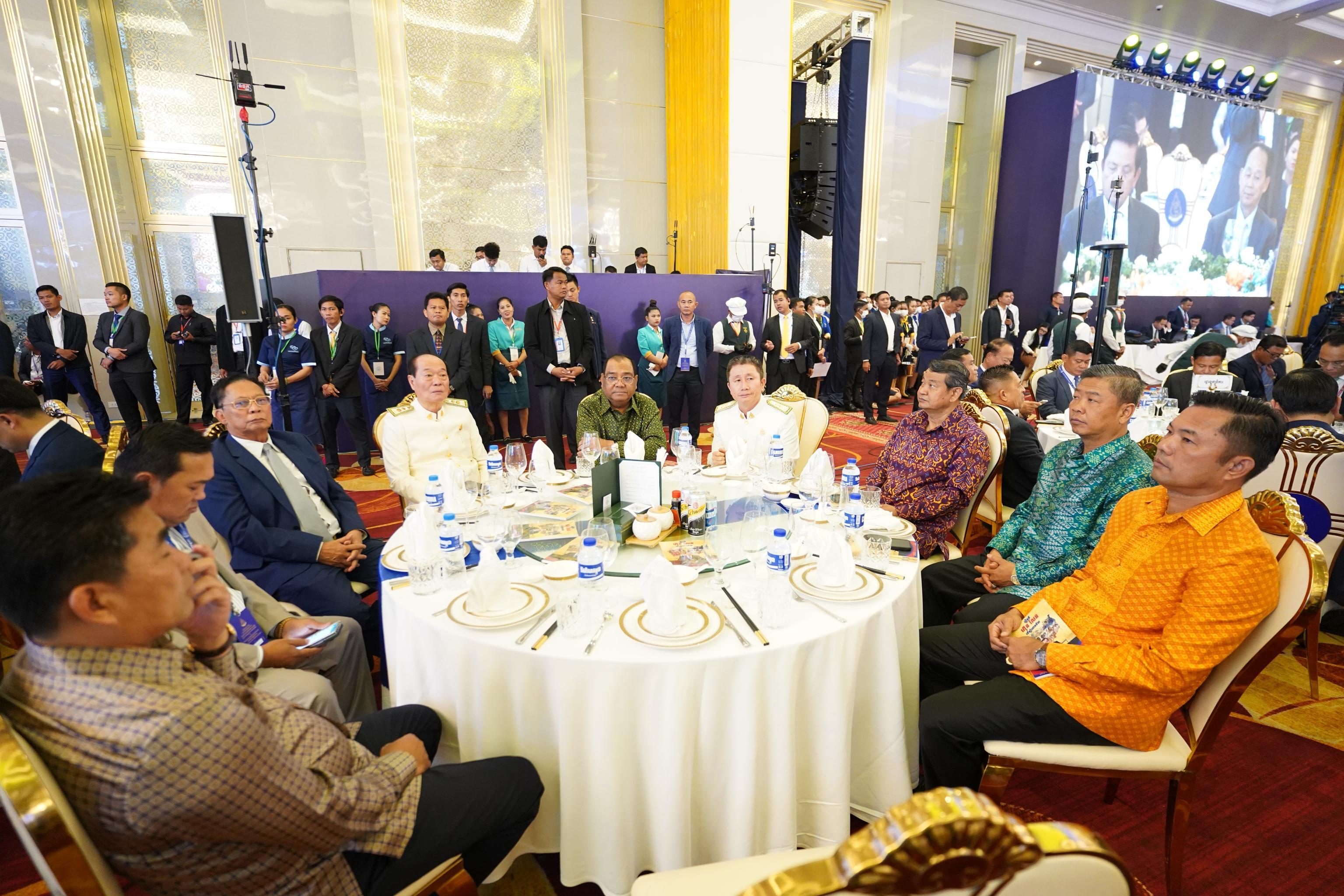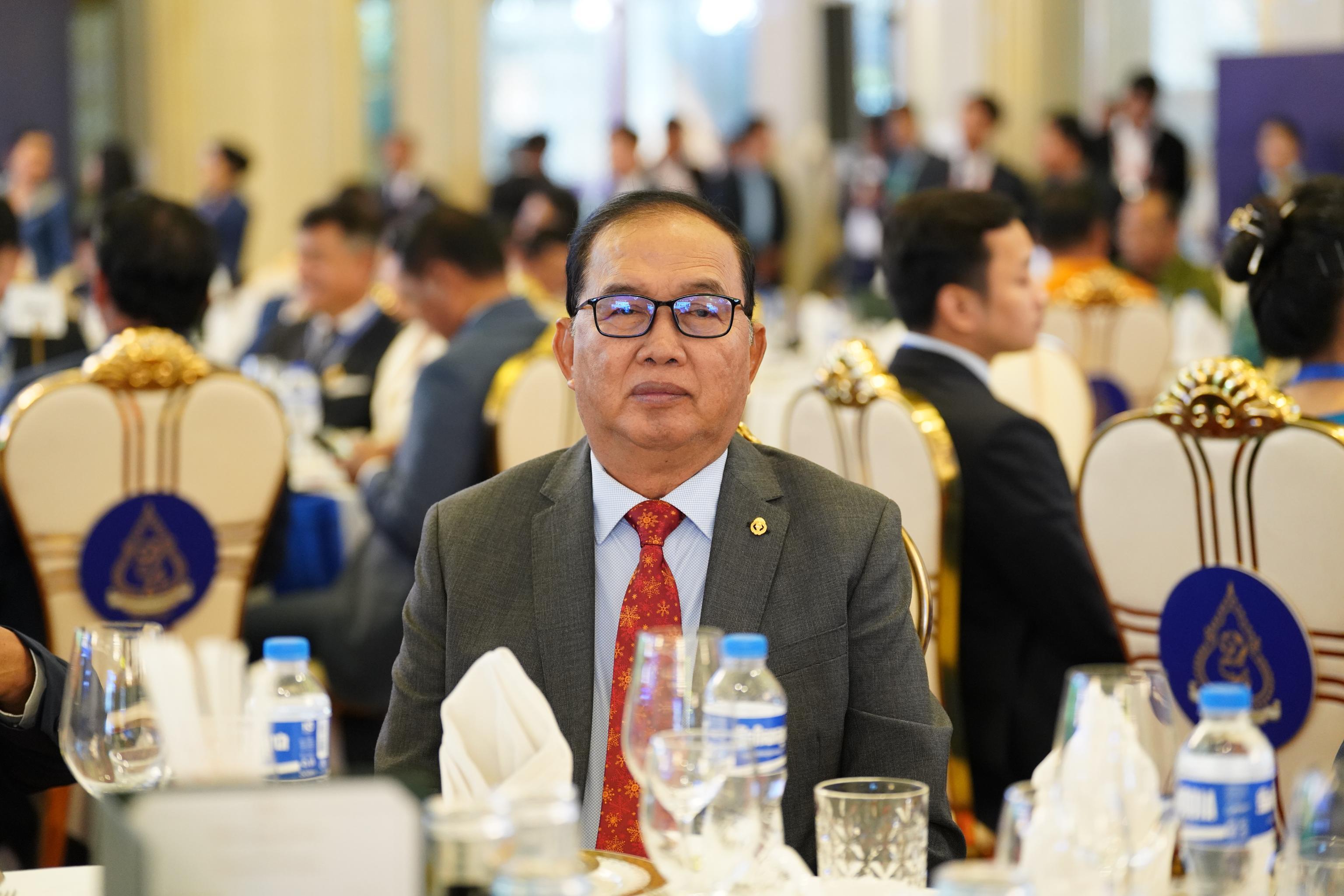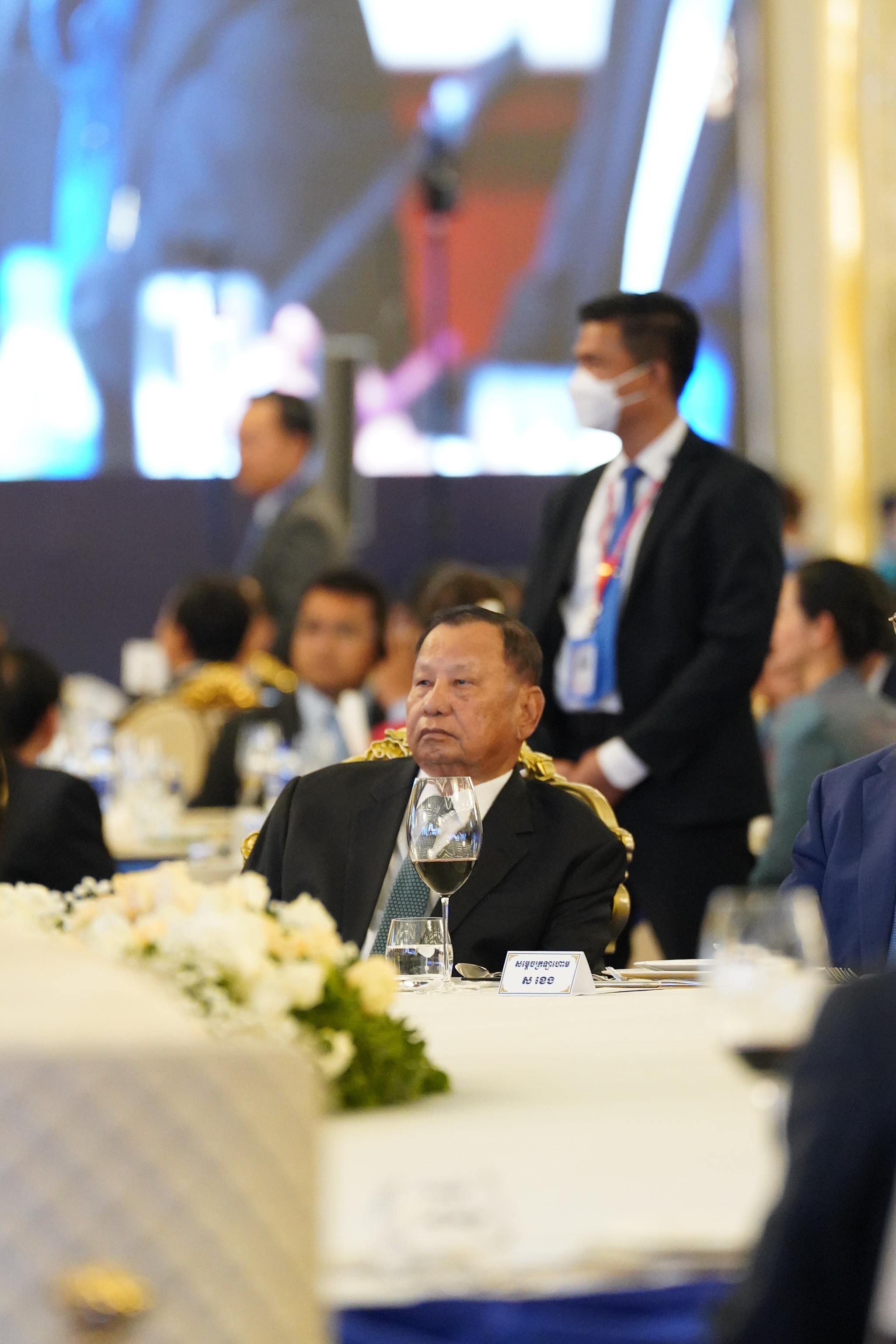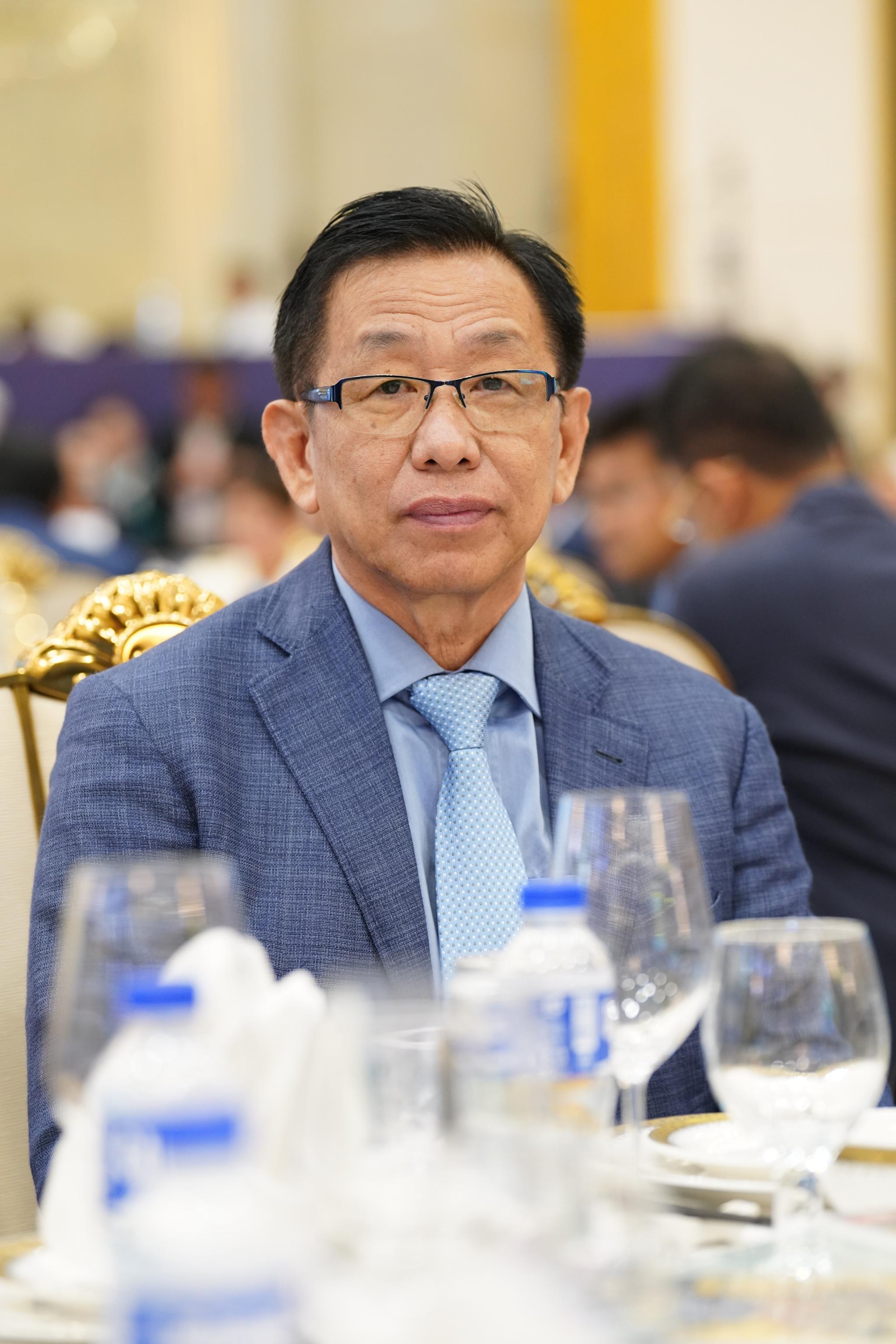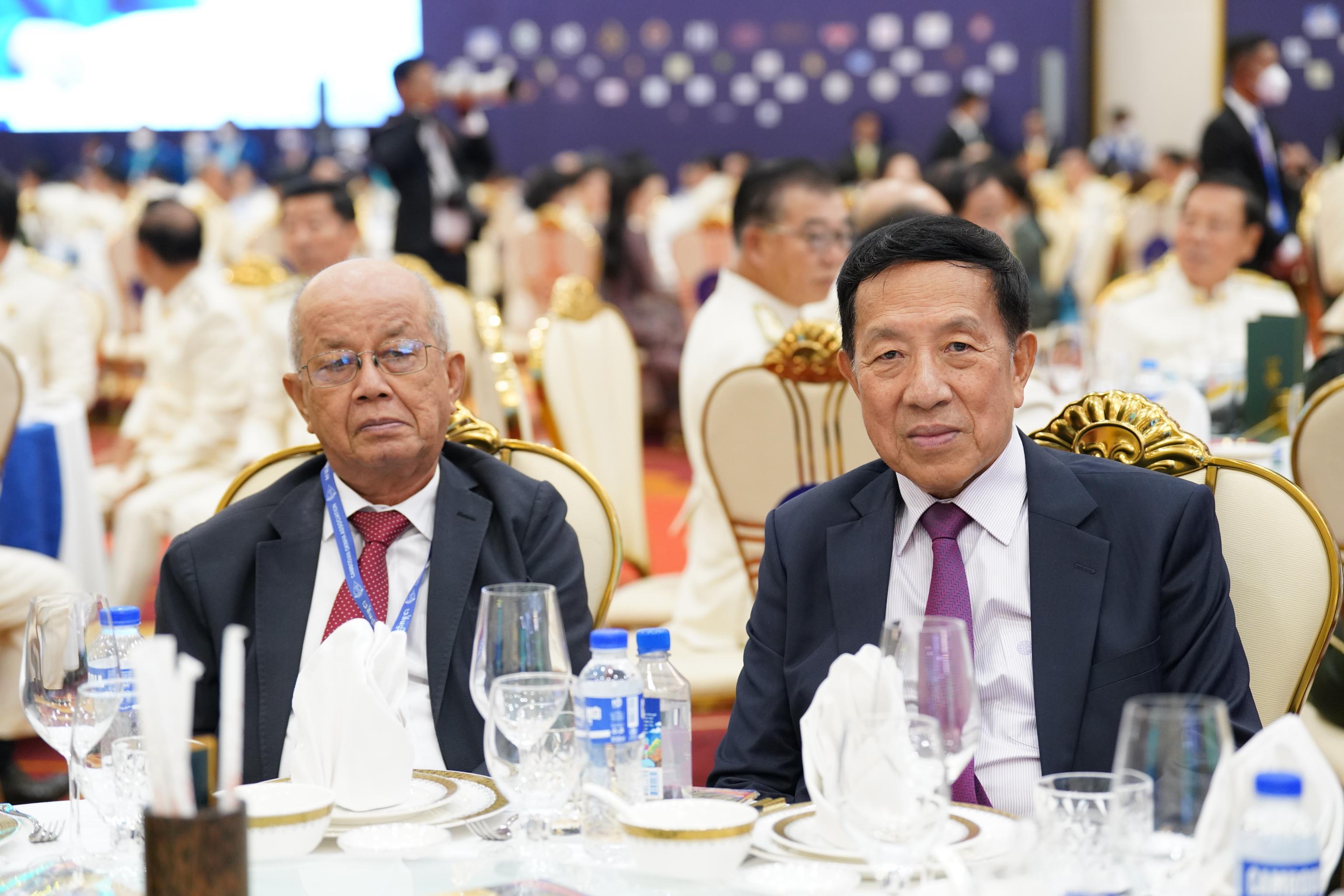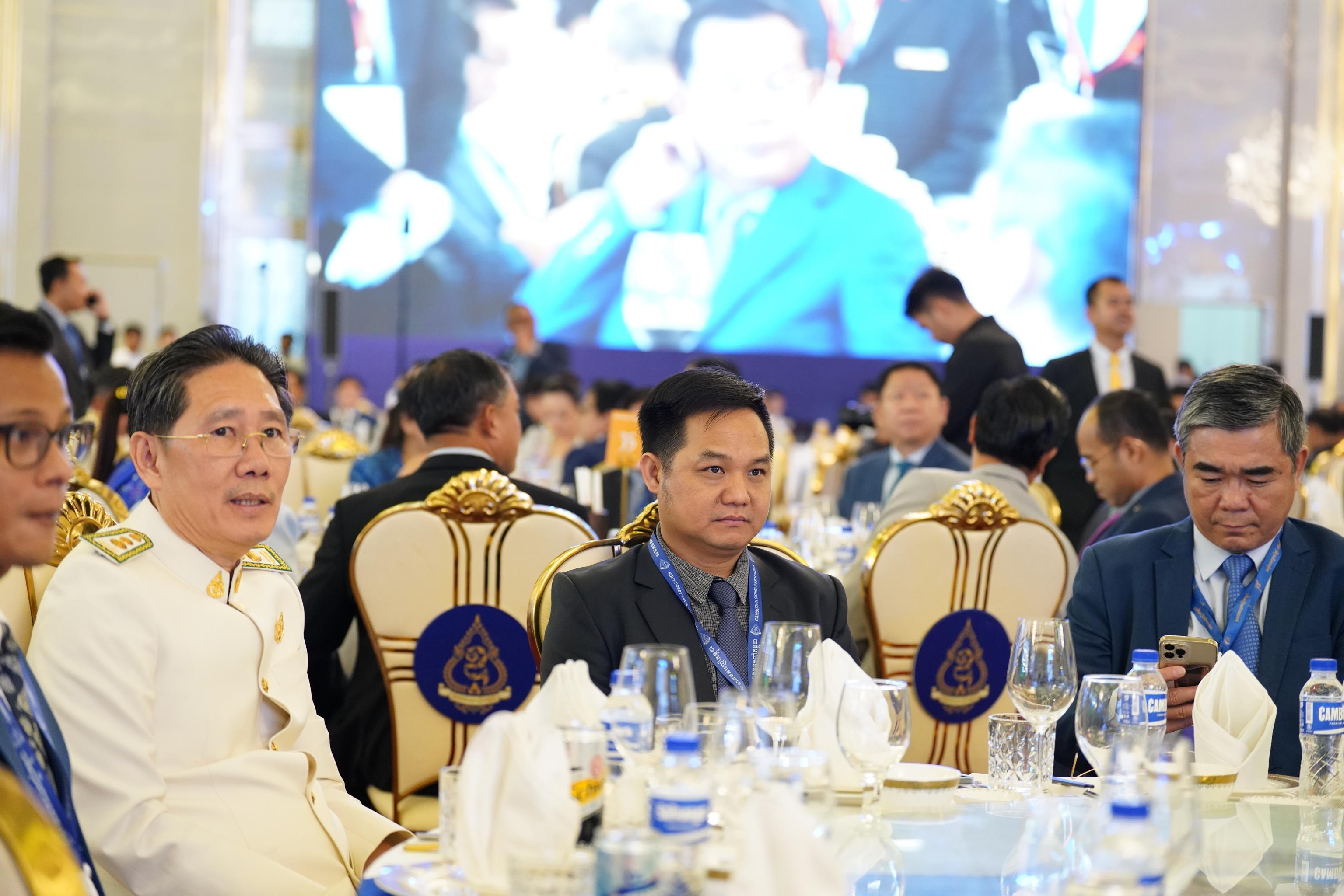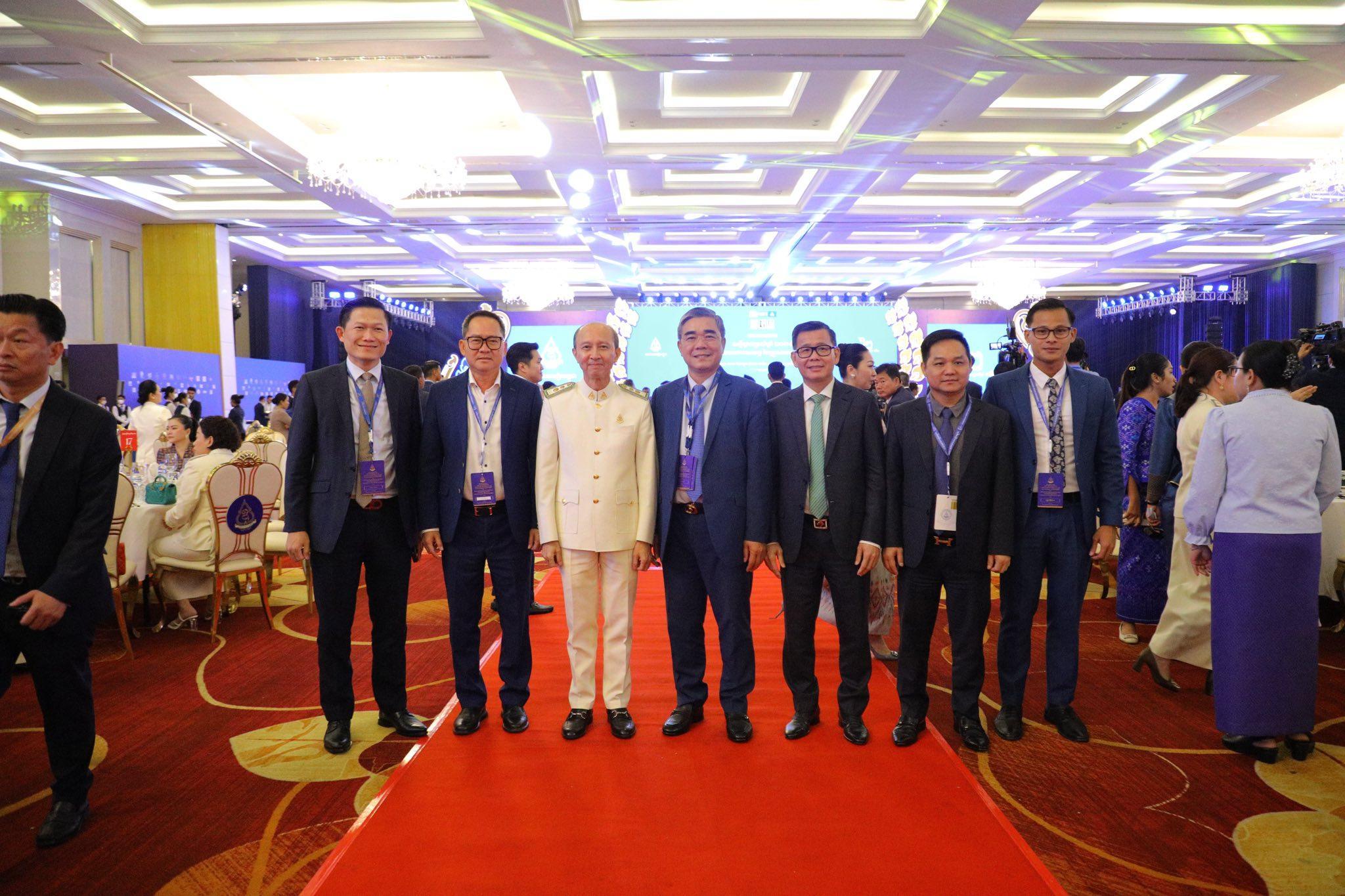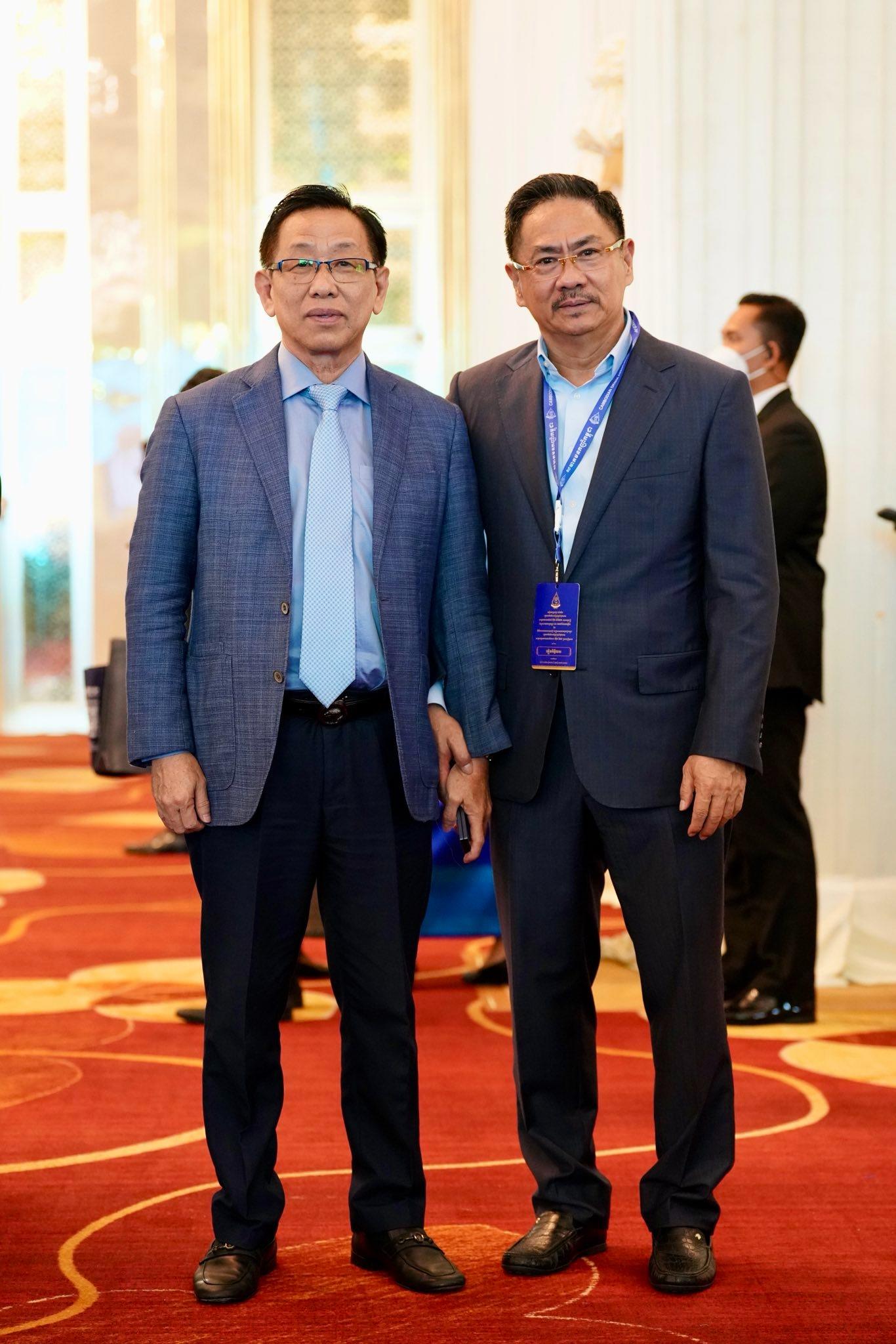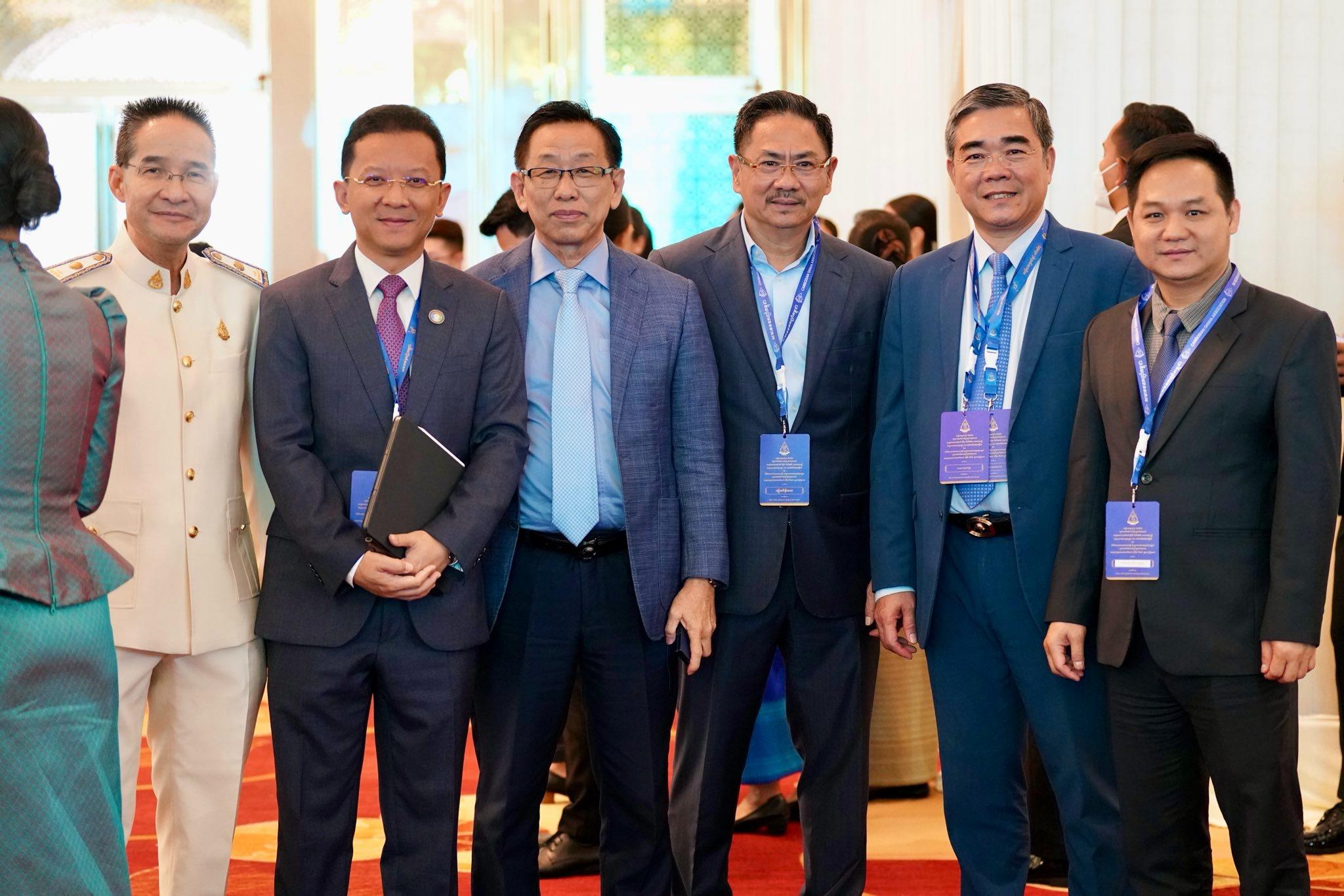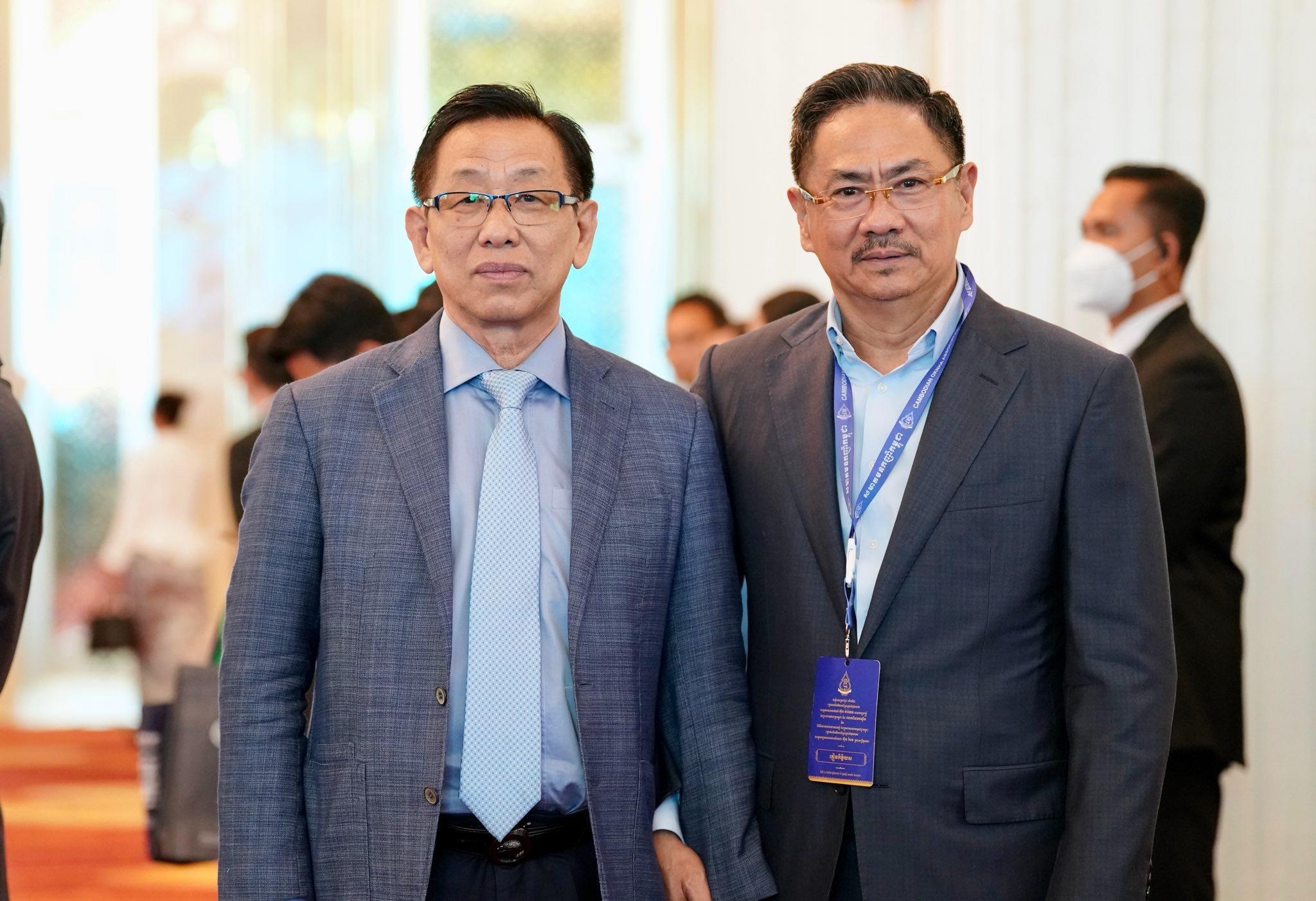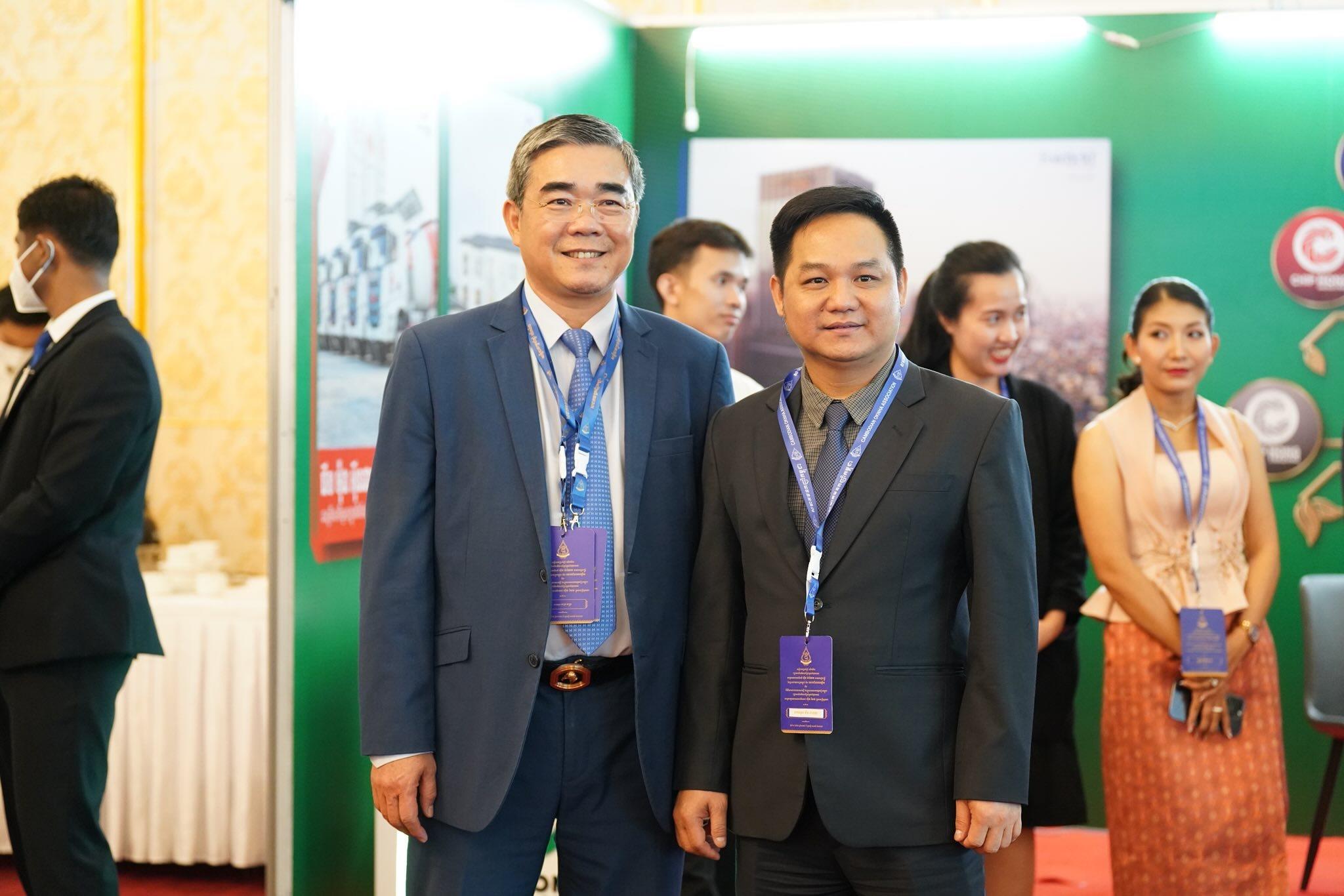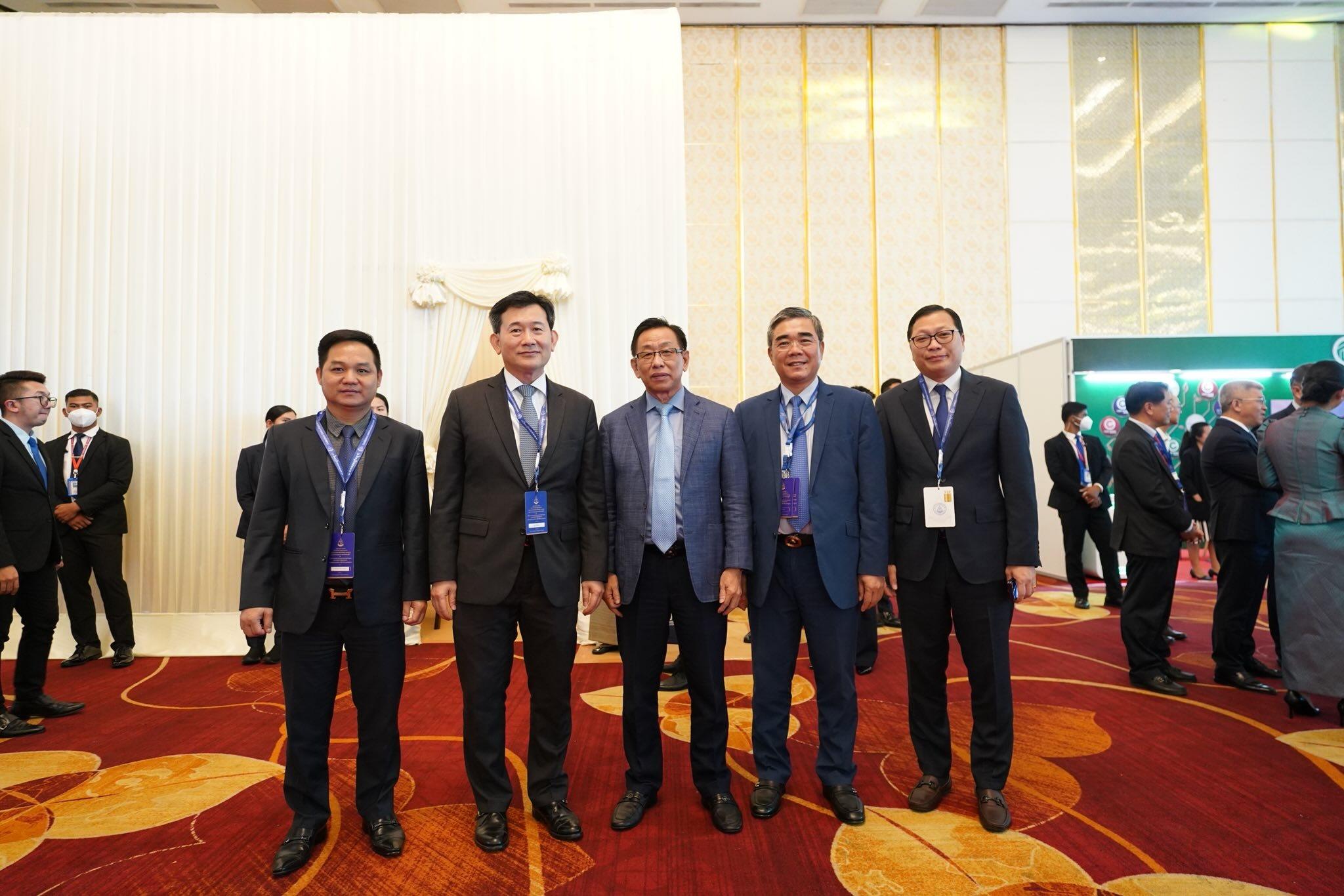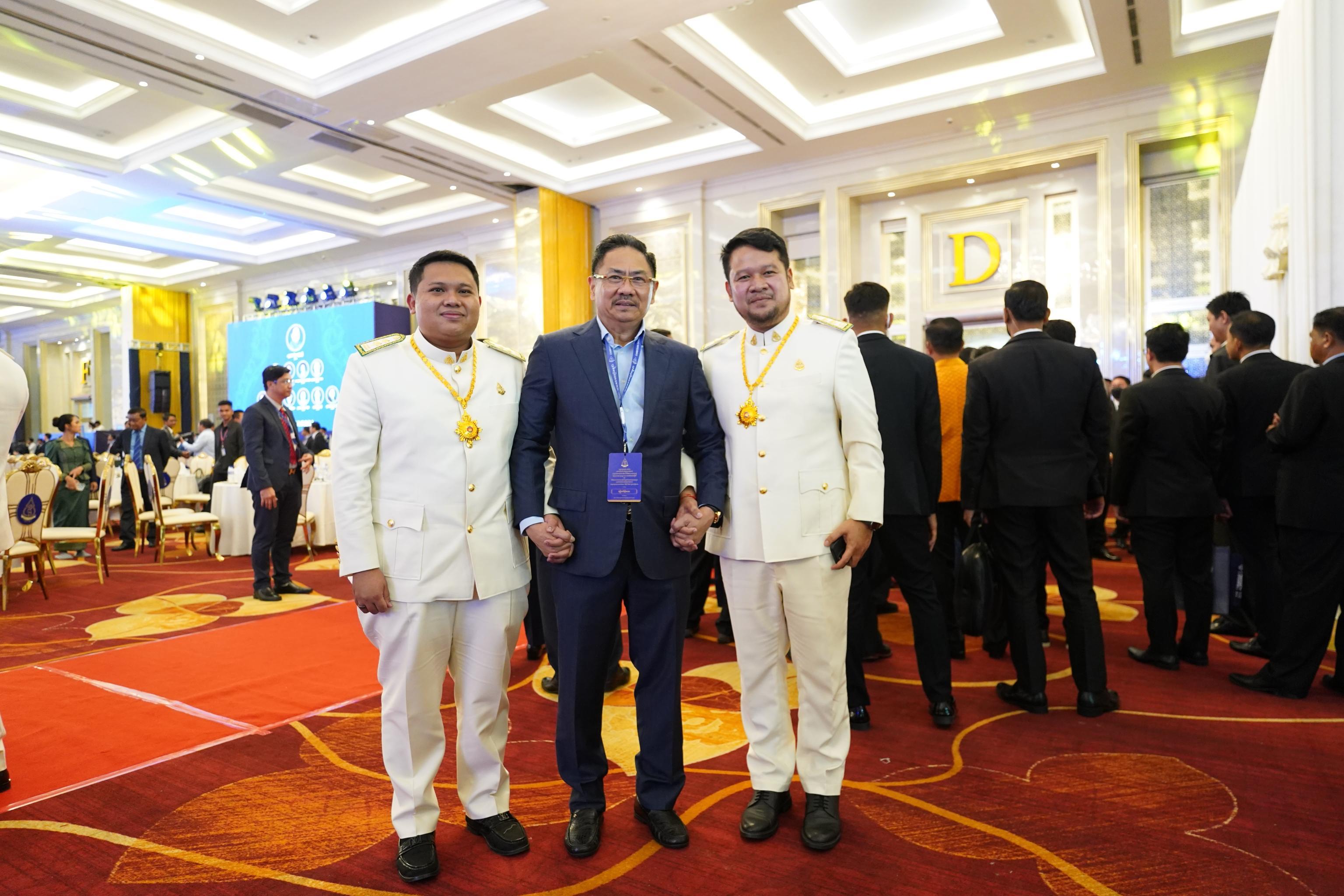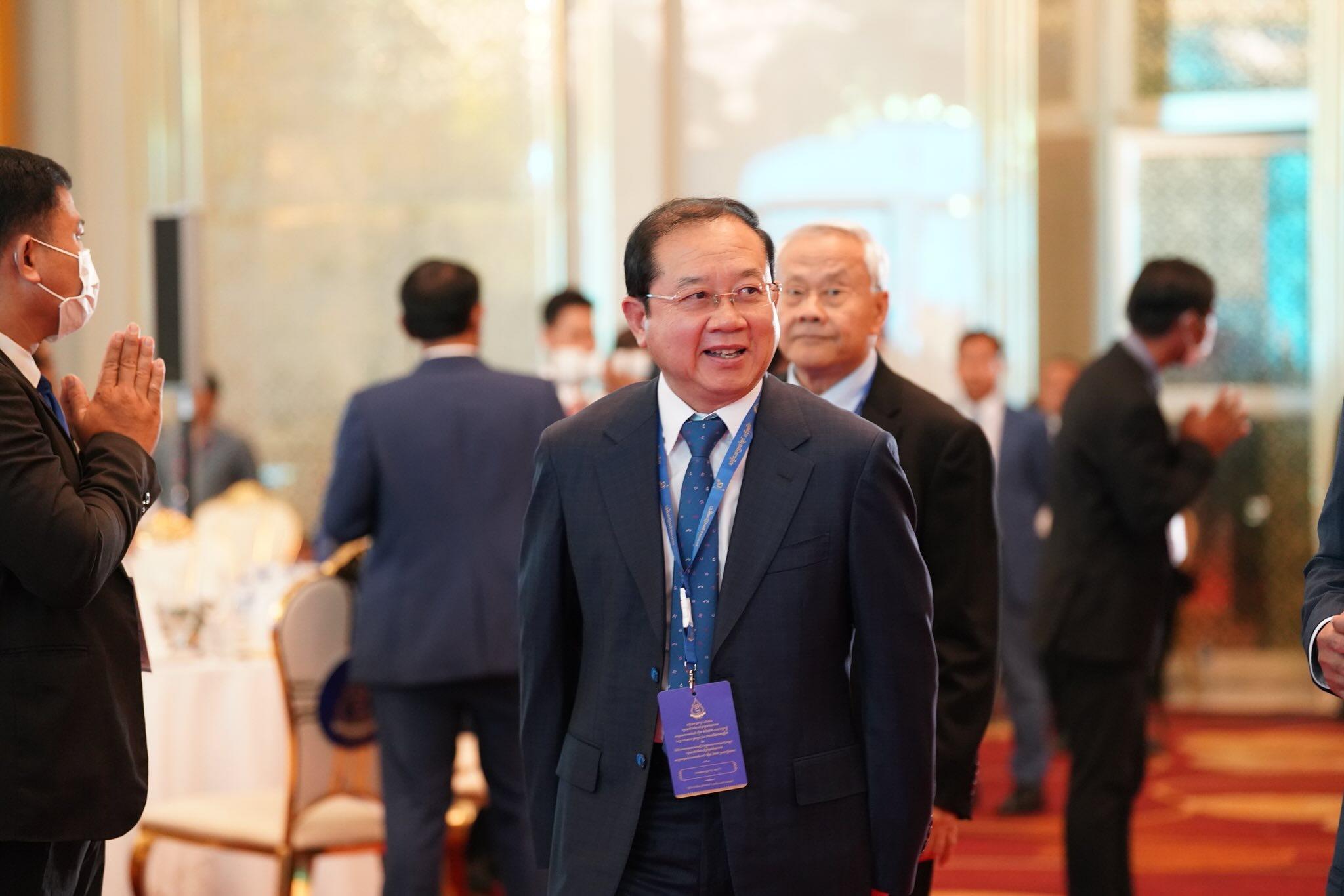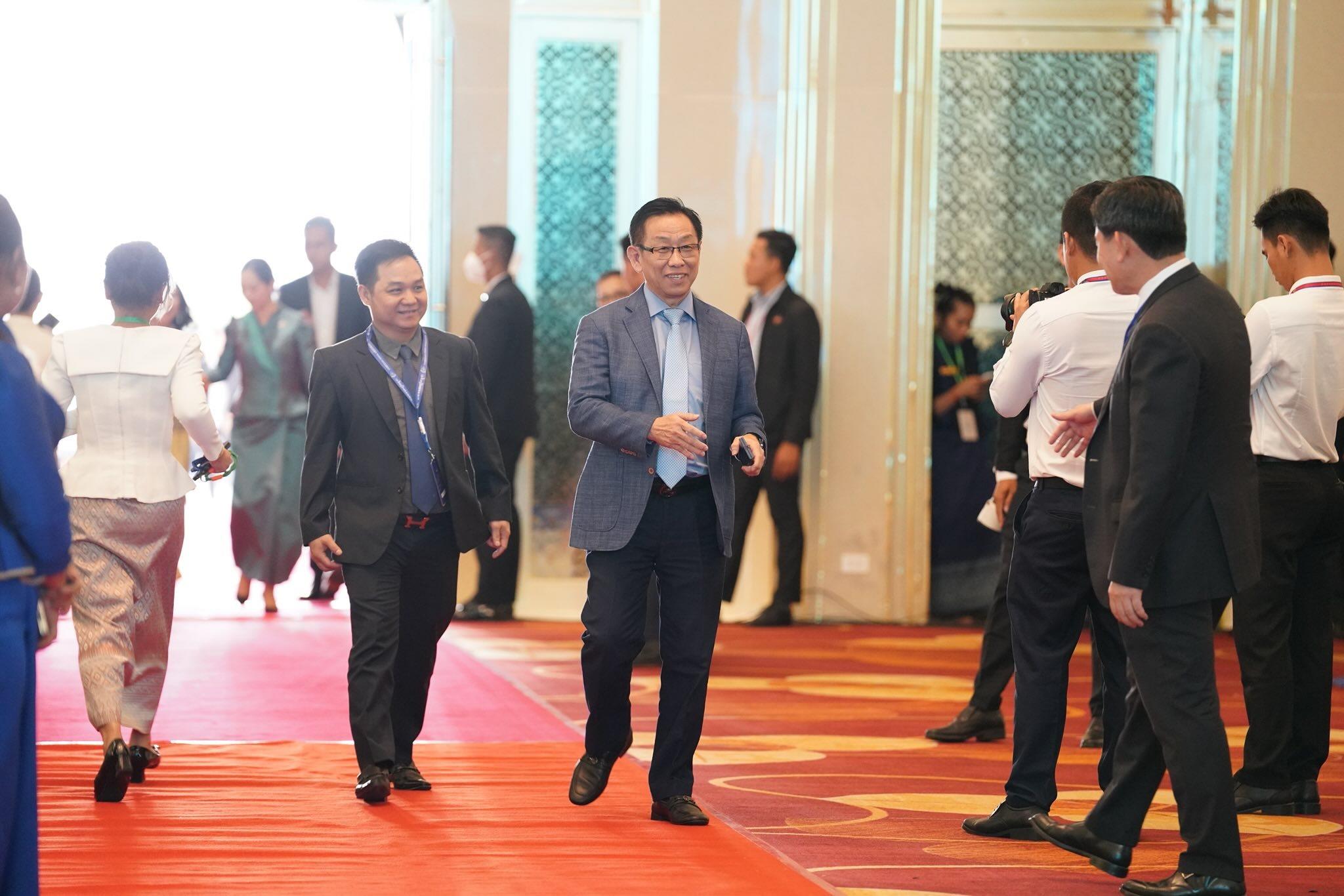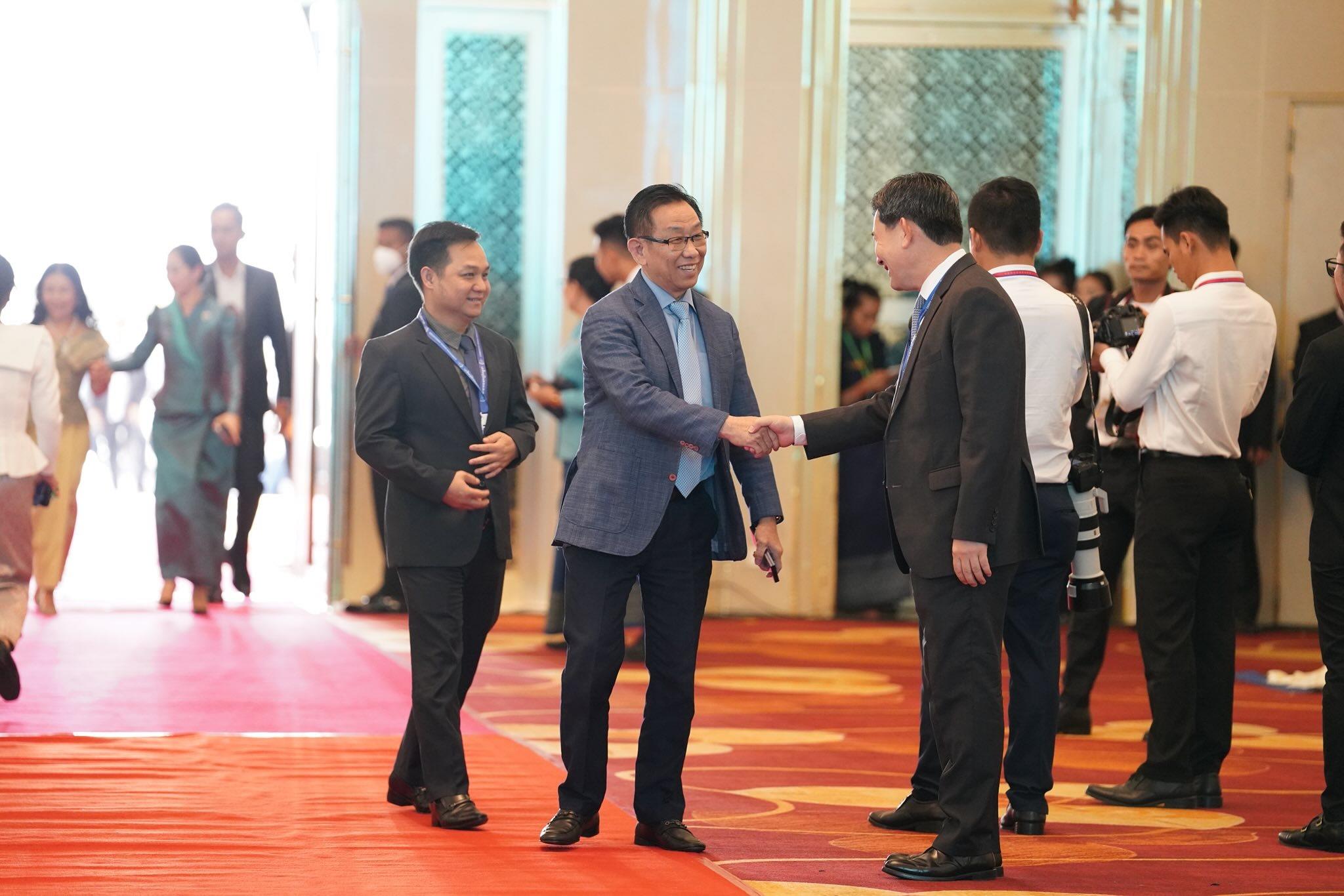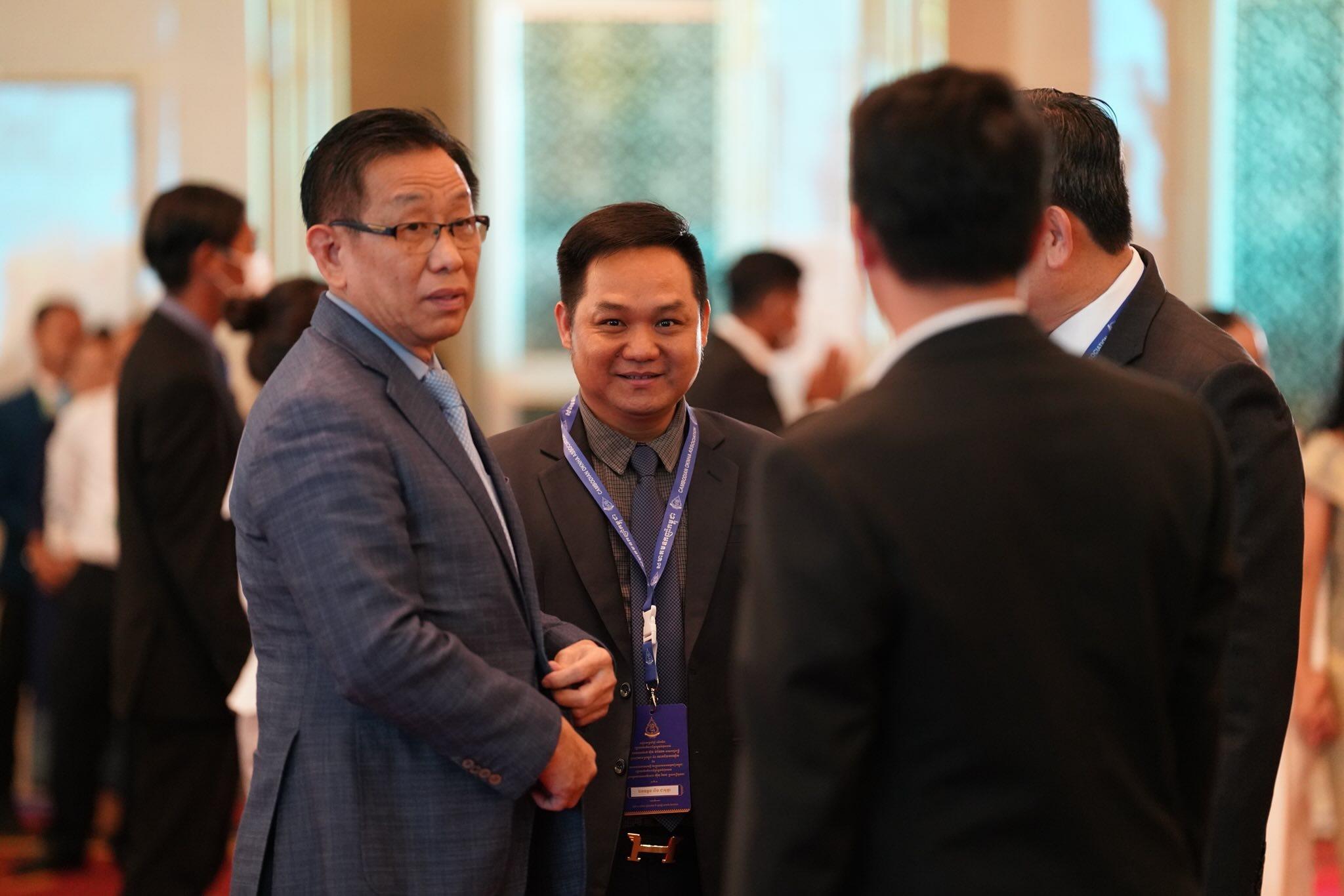Phnom Penh (FN), Mar. 14 – Samdech Techo Hun Sen, Cambodian Senate President, urged Cambodians working in Thailand and abroad to explore job opportunities in their homeland when visiting. While wages abroad may be higher, he noted that the cost of living is also greater, and staying closer to home offers significant advantages.
Samdech Techo spoke on Friday (Mar. 14) during a solidarity dinner with the Cambodian Oknha Association at Premier Centre Sen Sok in Phnom Penh.
Amid Cambodia's labour shortage, Samdech Techo Hun Sen emphasized the need for collaboration between the Royal Government, political parties, the Cambodian people, and the private sector. He urged everyone to work together to avoid the middle-income trap and drive the country toward becoming a high-income nation.
"Studies by our economists and associations show that we are starting to face a labour shortage. Therefore, we urge Cambodian workers in Thailand and other countries to consider returning home and exploring local job opportunities. While wages abroad may be higher, the cost of living is also steep, and they remain far from their homeland,” Samdech Techo added.
The Royal Government of Cambodia aims to become an upper-middle-income country by 2030 and a high-income country by 2050, guided by the principles of "Maintaining old achievements, creating new ones" and "Think globally, act locally. To achieve this, the government has launched the “Pentagon Strategy - Phase I,” focusing on growth, jobs, equity, efficiency, and sustainability. The strategy prioritizes five key areas: people, roads, water, electricity, and technology.
The six priority policies in the political program of the Royal Government of the 7th legislature of the National Assembly include:
Program 1: Provision of health care towards a global health coverage program, starting with (1) providing health care services to more than 450,000 vulnerable families, equivalent to a total of more than 1. 5 million members through the use of health equity funds; and (2) expanding the health care regime for holders of national social security fund (NSSF) cards - both for workers and for public officials, which also covers more than 3 million family members, and their dependents on a voluntary basis. In total, the two projects will provide access to social security services for an estimated 7.4 million people.
Program 2: Provision of vocational and technical training for more than 1.5 million young people from poor and vulnerable families across the country at state vocational training institutions at the technical degree level, and Level 1 Vocation for which they do not pay tuition fees and will receive a monthly stipend.
Program 3: Establishment of a national social assistance program for poor families, vulnerable groups in poor households and vulnerable families in times of economic crisis and emergency to support and provide timely and systematically to the people, especially the poor and vulnerable families, and families vulnerable to risks according to the actual situation of the crisis or disaster in all geographical locations across the country, which will cover a total population of about 4.3 million people.
Program 4: Launching and promoting the implementation of the informal economic development strategy to be able to participate in the formal economy and be able to benefit from the formal social protection system through - (1) providing protection and development of a favorable environment for business and trade, as well as providing technical and vocational training to small and medium-sized enterprises, and (2) providing social protection to self-employed individuals in the informal economy with a primary focus on the provision of health care services under the Health Equity Fund.
Program 5: Introduction of coordination mechanisms and financing programs aimed at boosting production, marketing and maintaining balance of key agricultural prices at a reasonable level through the introduction of specific budget packages, starting at US$ 100 million, with the possibility to allocate more budgets if necessary to intervene in time to buy agricultural produces from farmers with the goal of maintaining price stability in each harvest season, especially on some agricultural produce such as rice, mango, longan, cashew nut, cassava, corn and other produces as needed.
Program 6: Deployment of technical officers to provide agricultural services to all rural communes throughout the country to promote agricultural productivity and assist farmers' families in promoting their agricultural products.”
The political program of the Cambodian People's Party 2023-2028 is a continuation of the political program 2018-2023 and responds to the evolution of the actual situation both in the country and abroad. This political program is built on the sacred will and aspirations of the people and the realism that the party has the real capacity and ability to implement.
=FRESH NEWS
